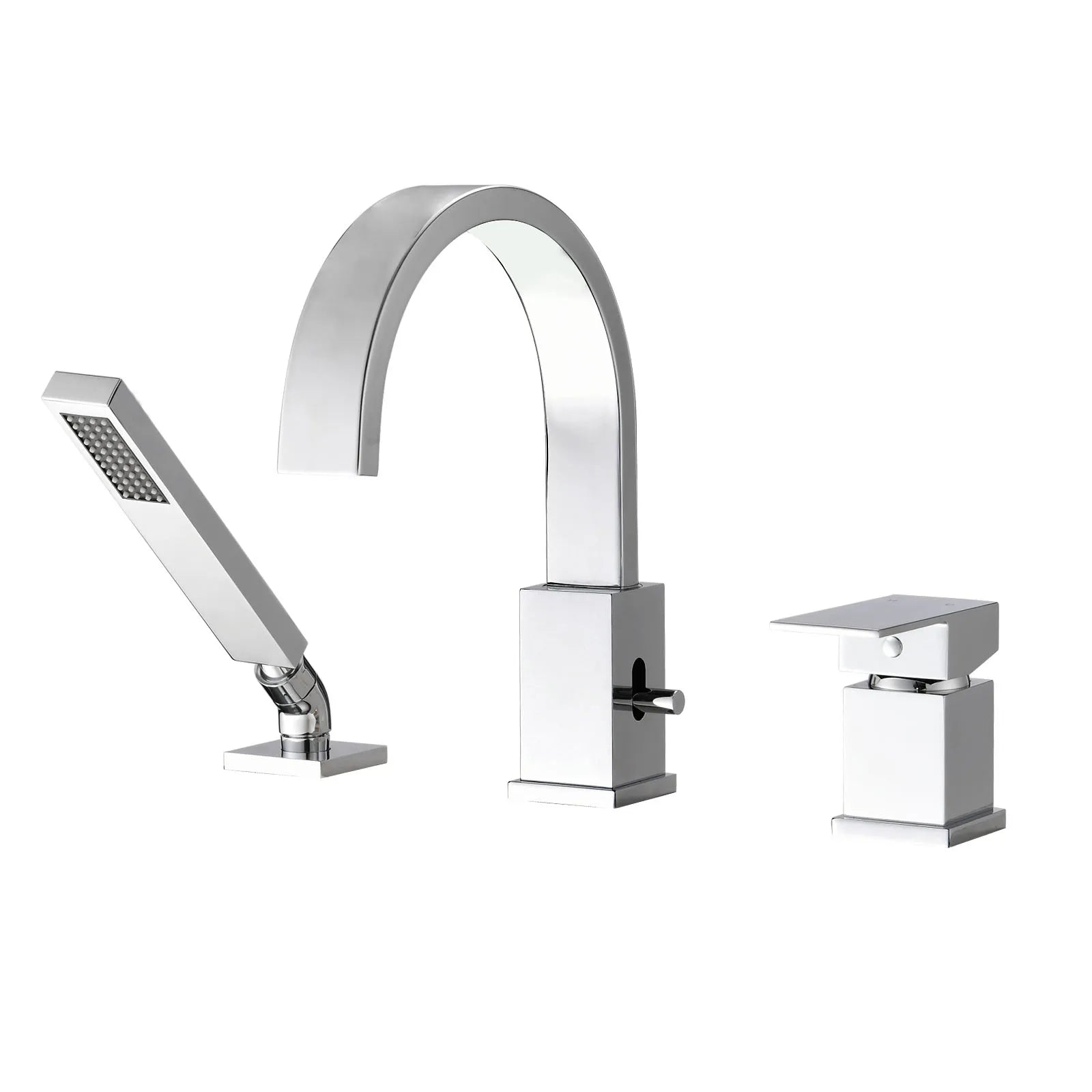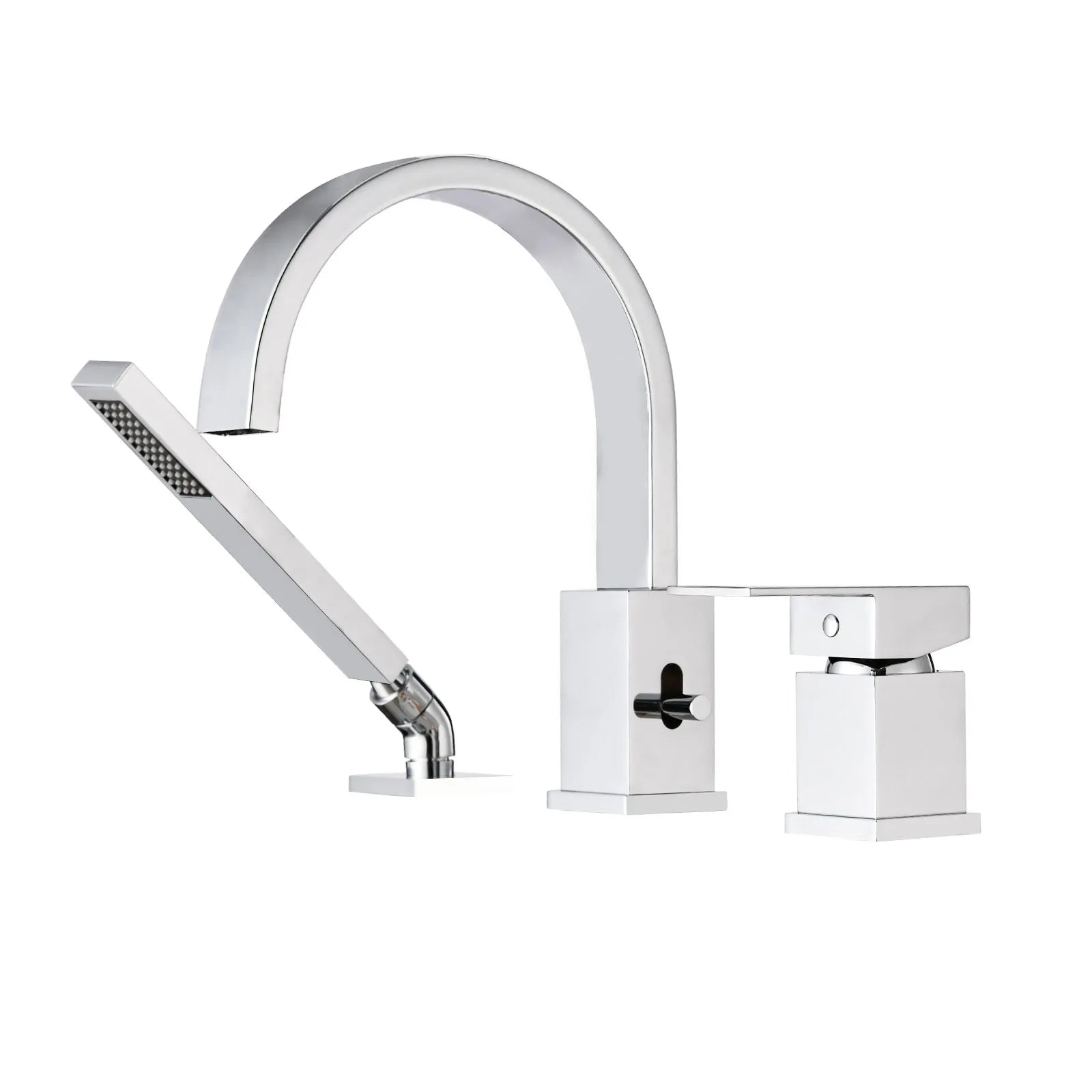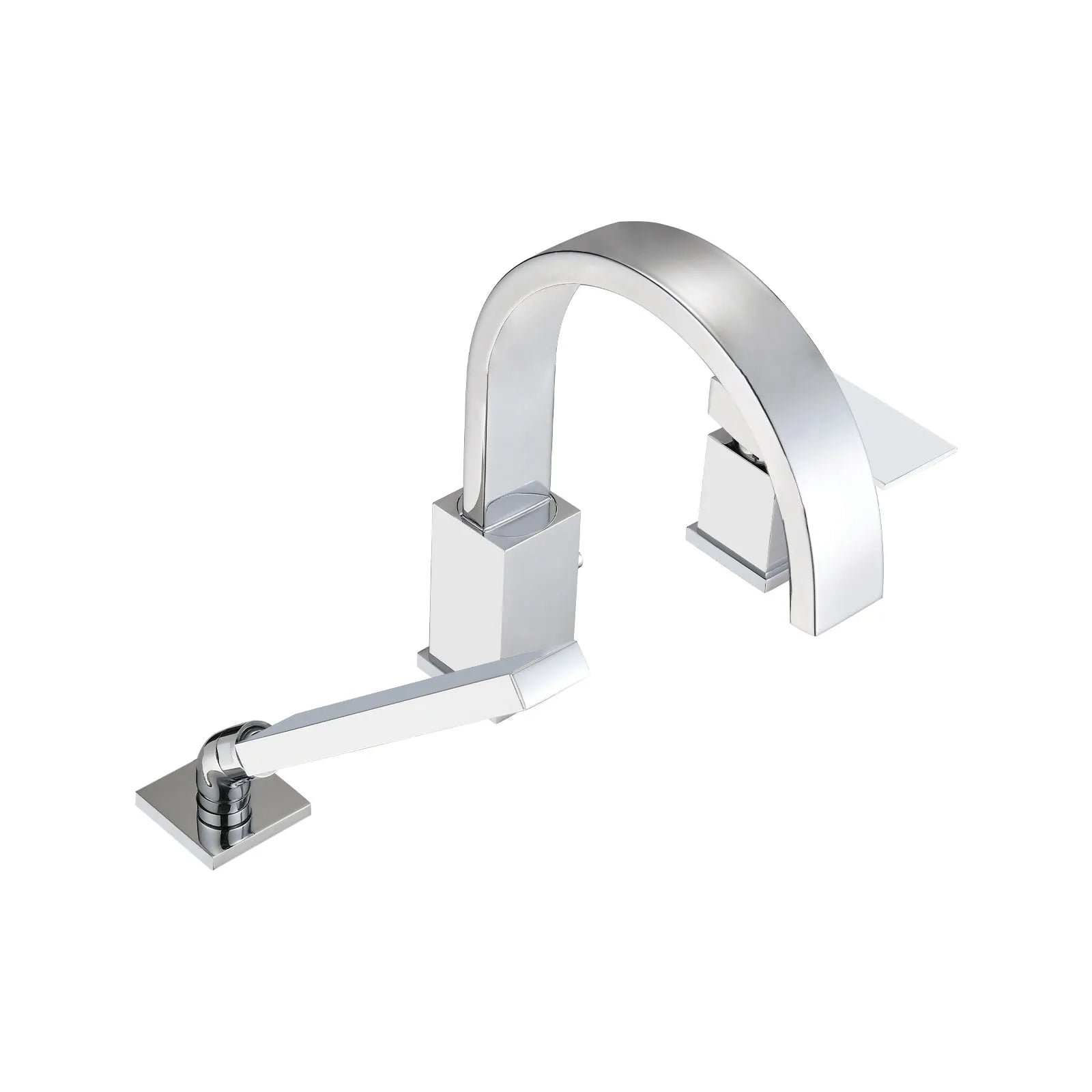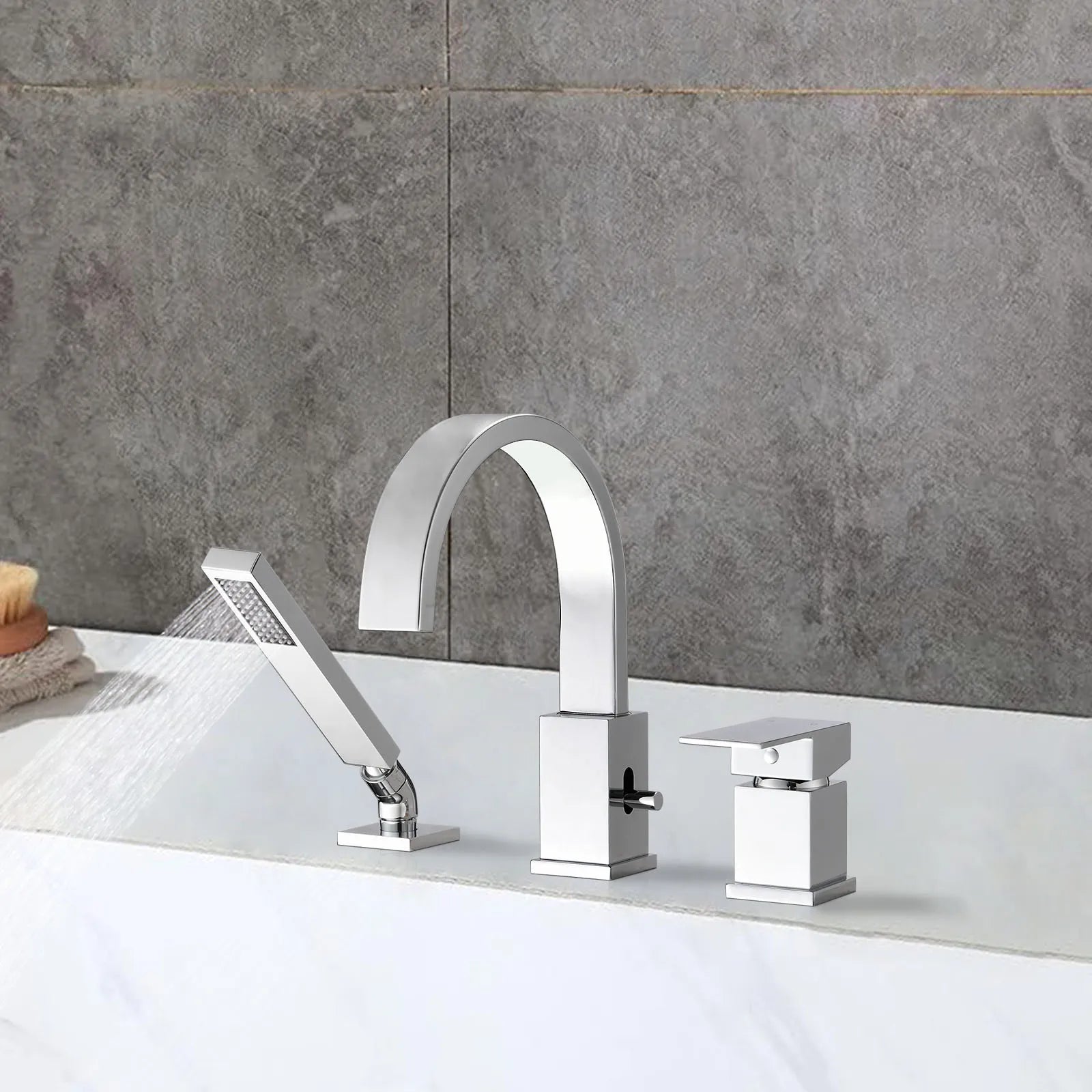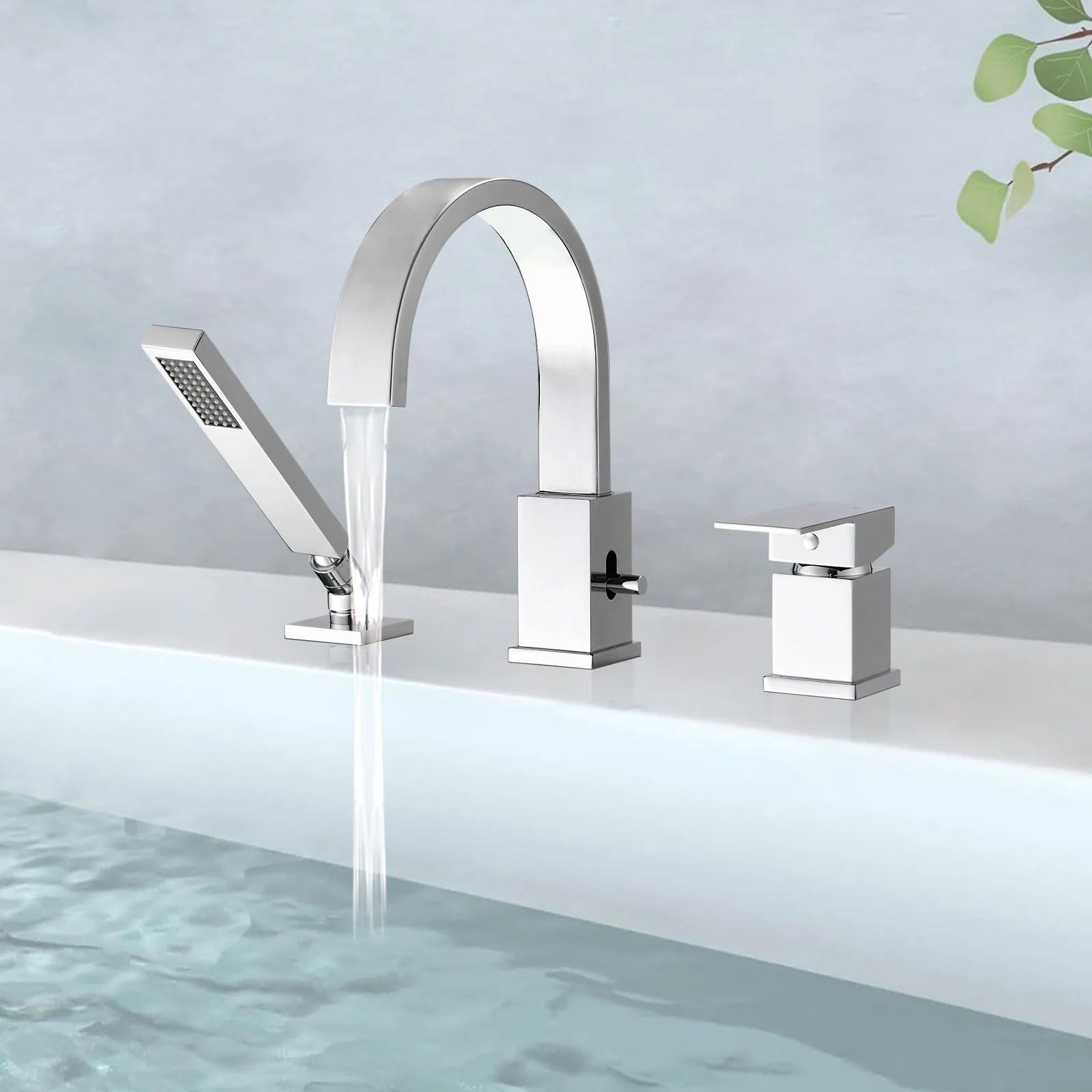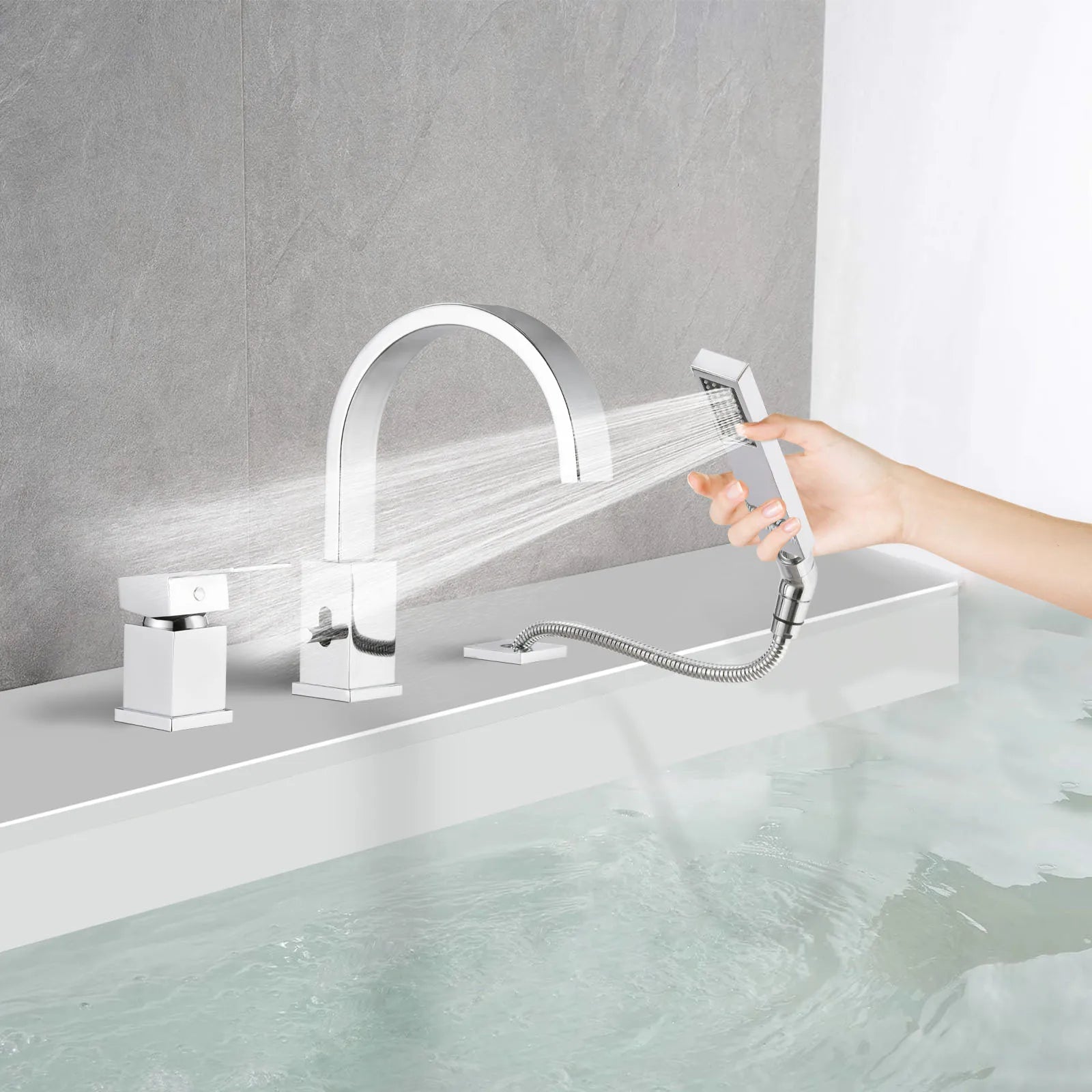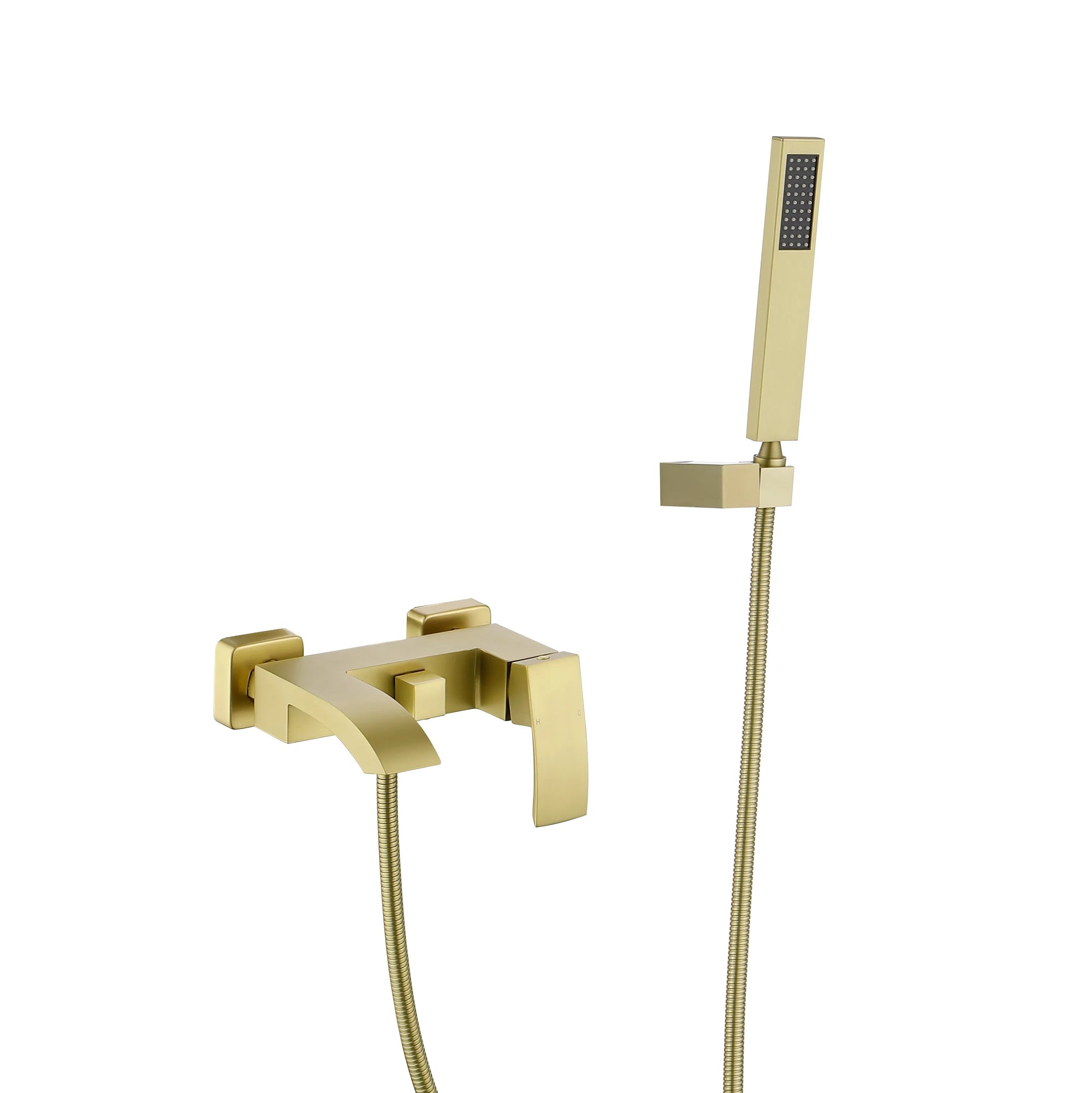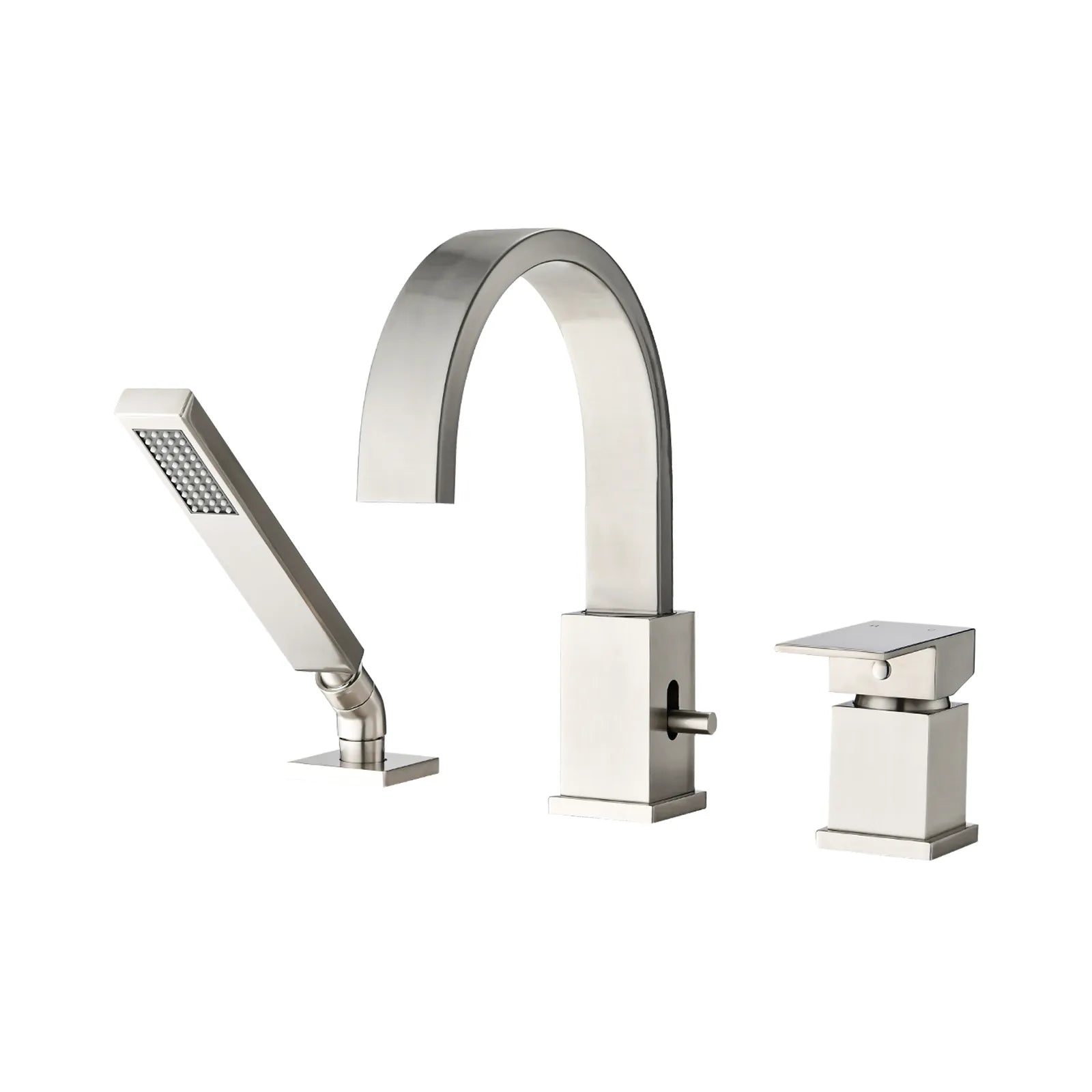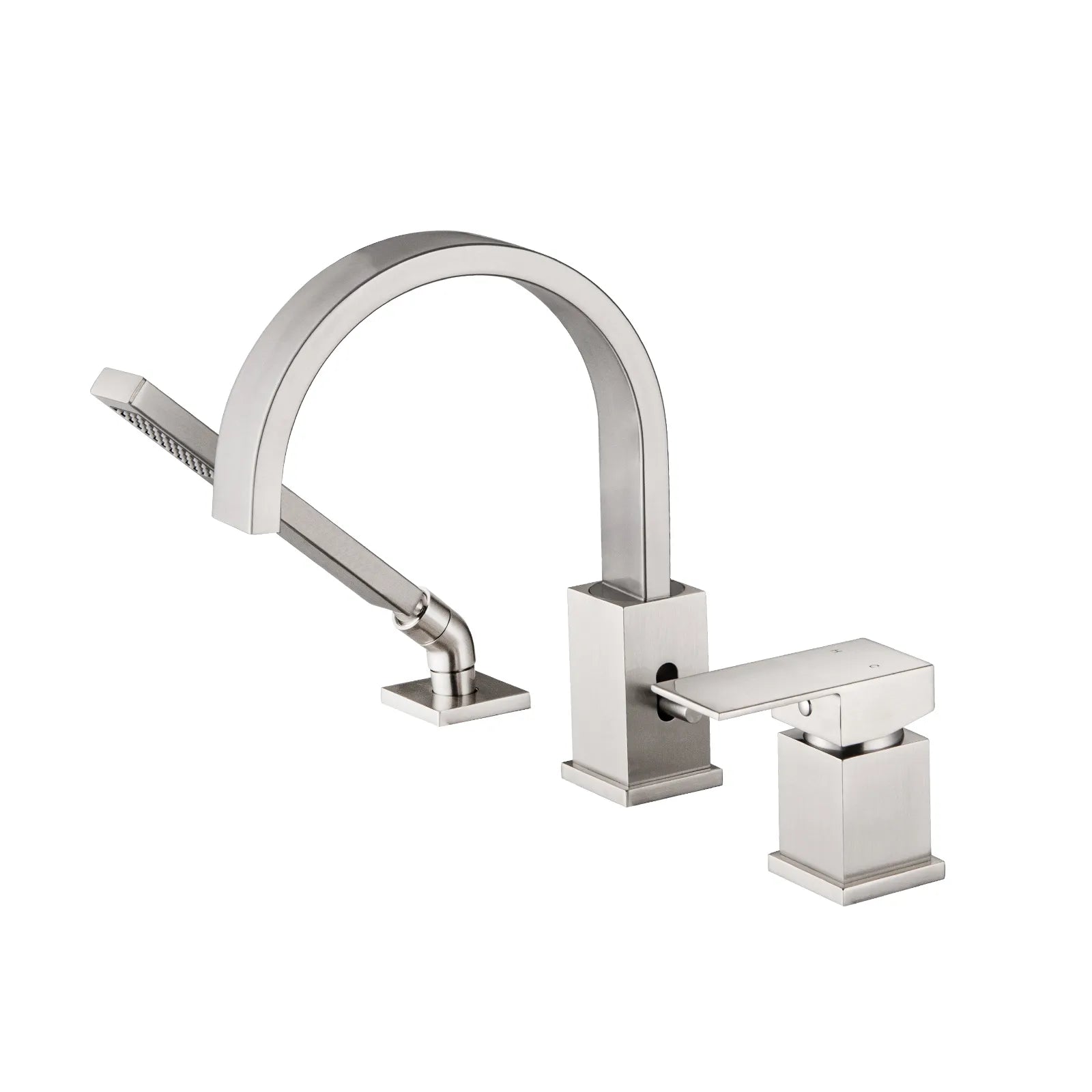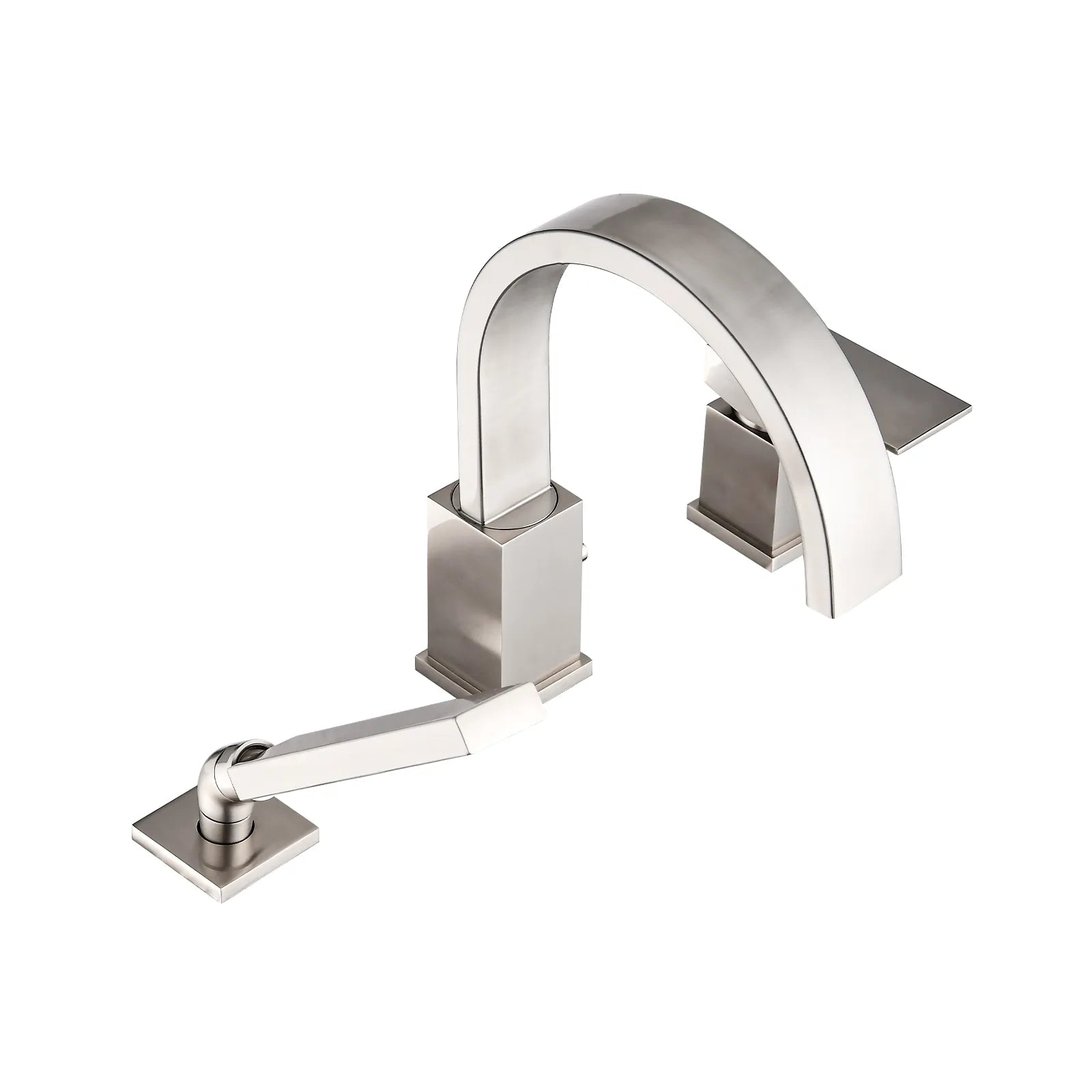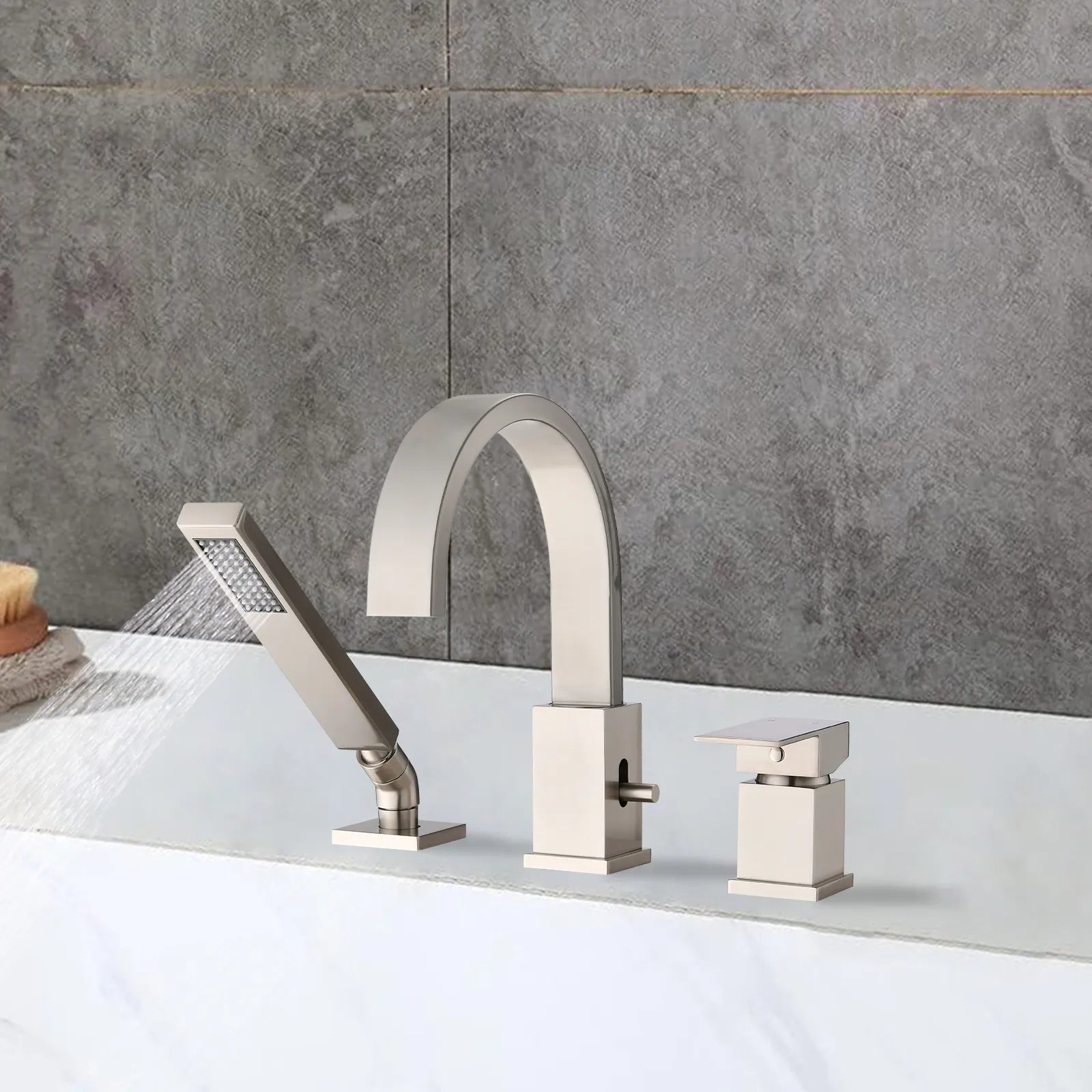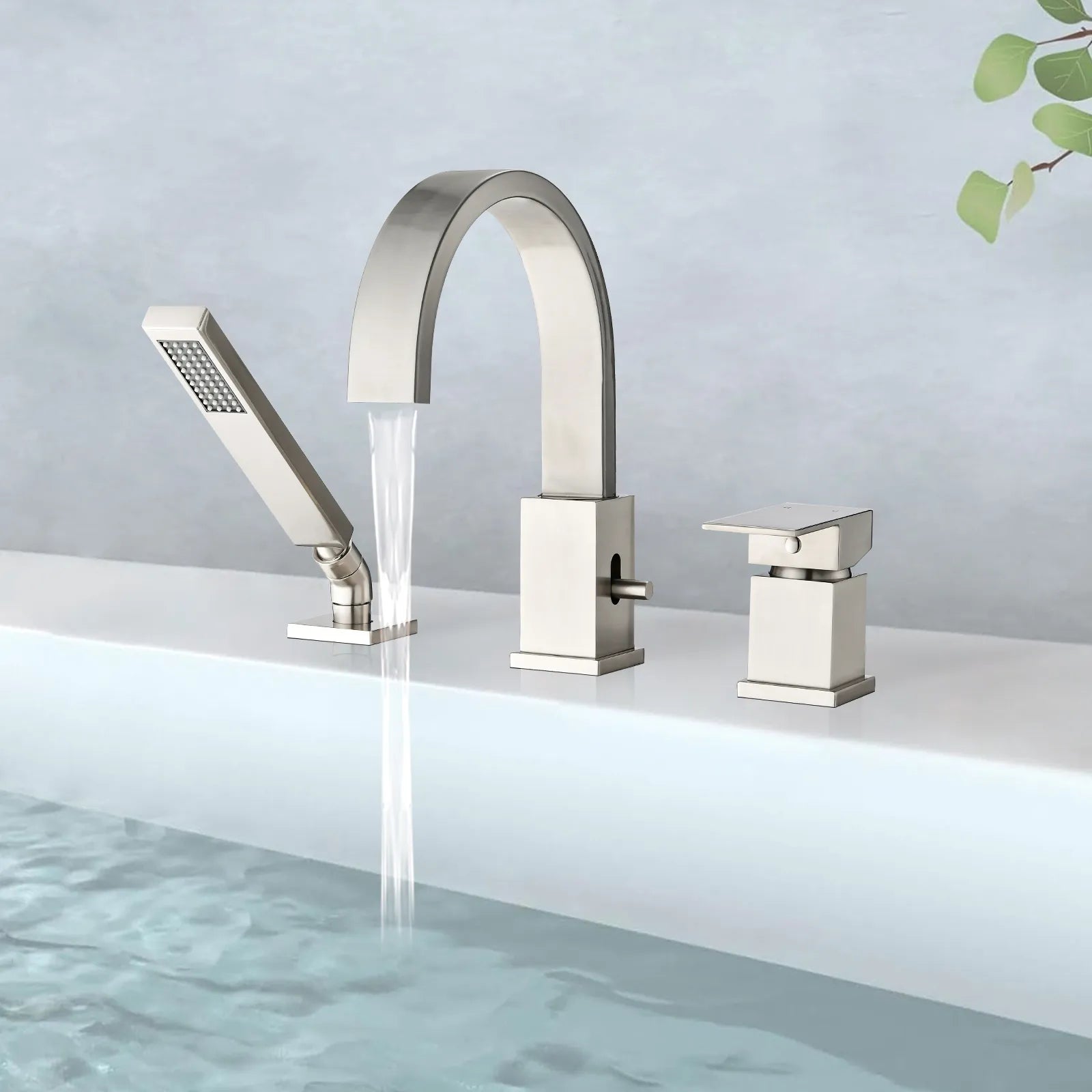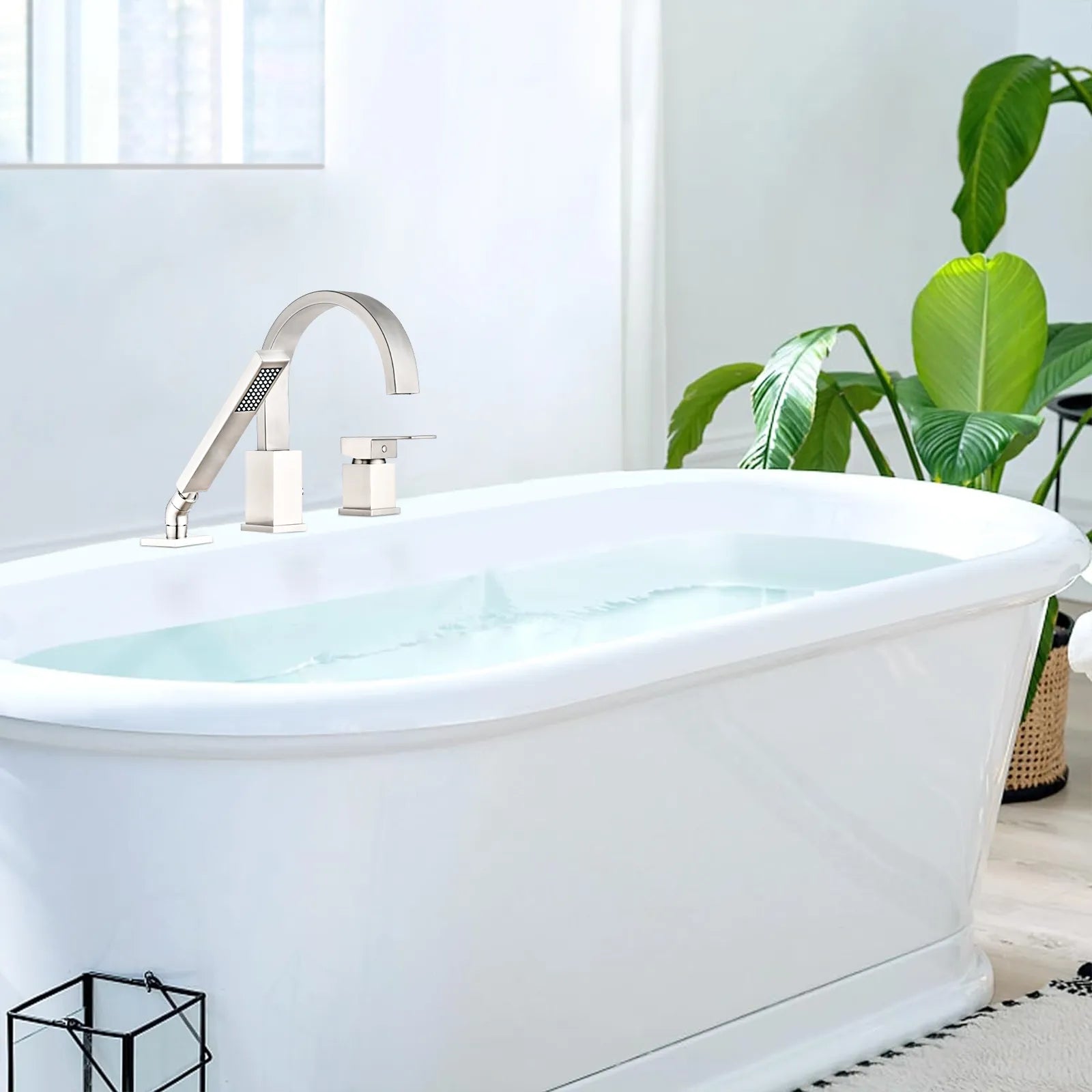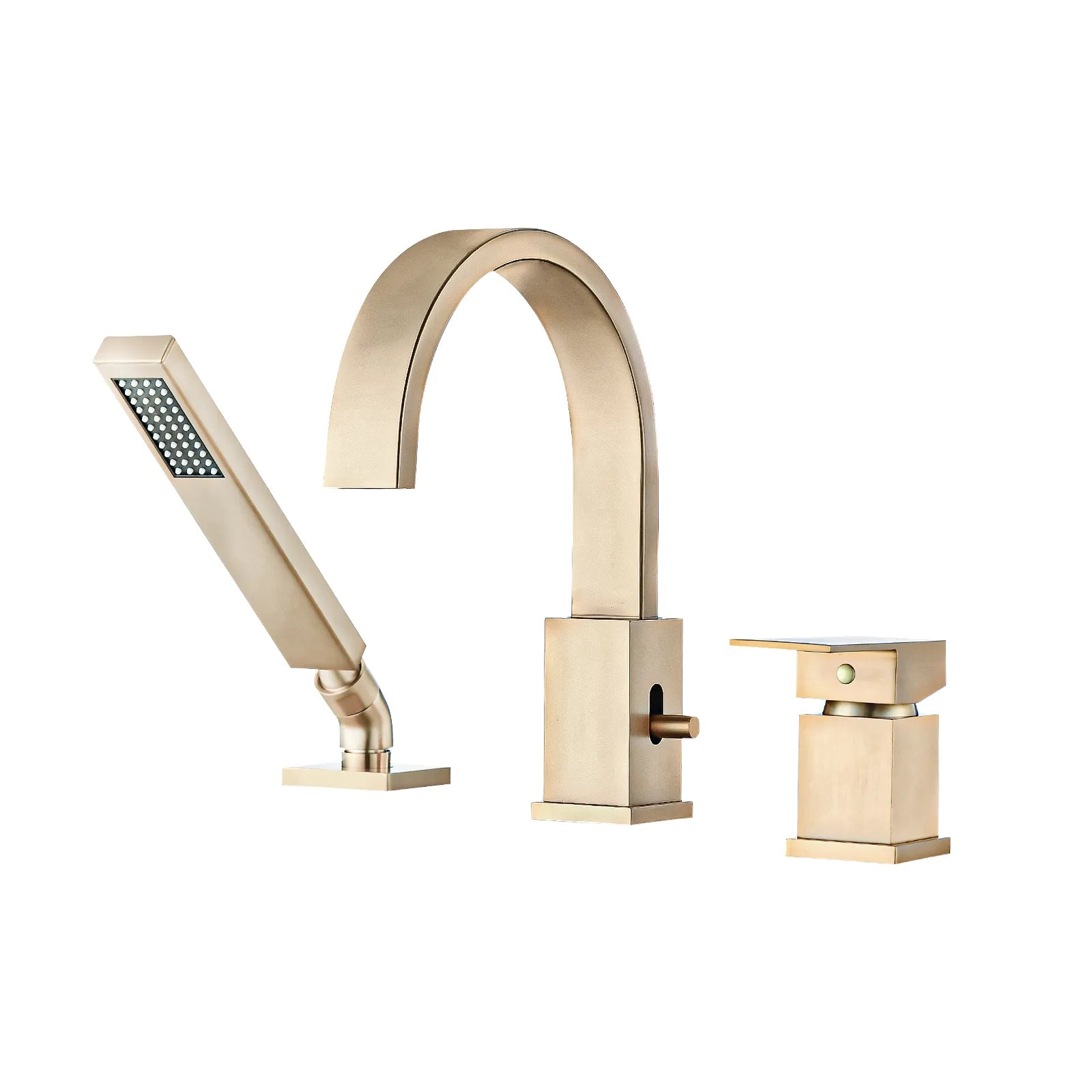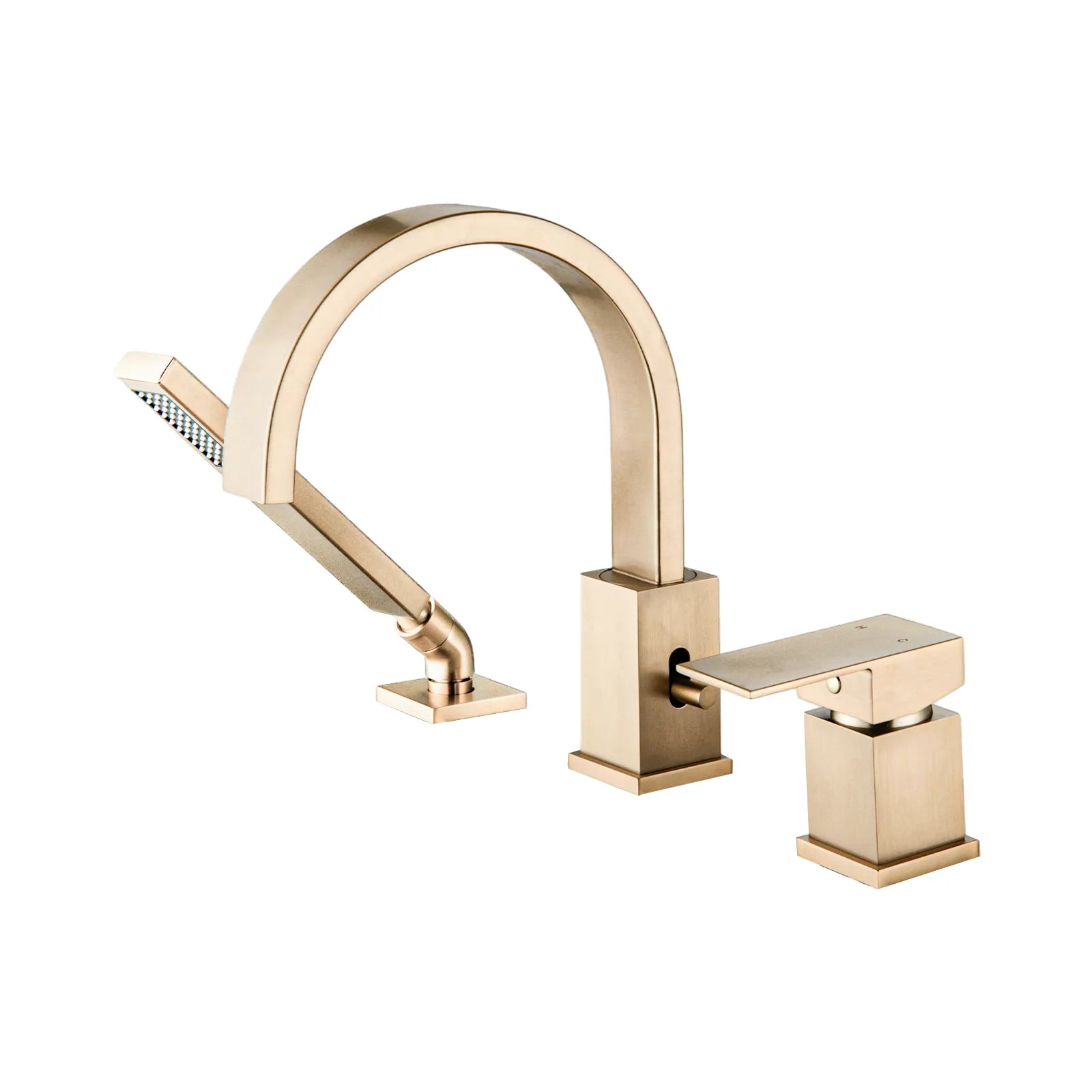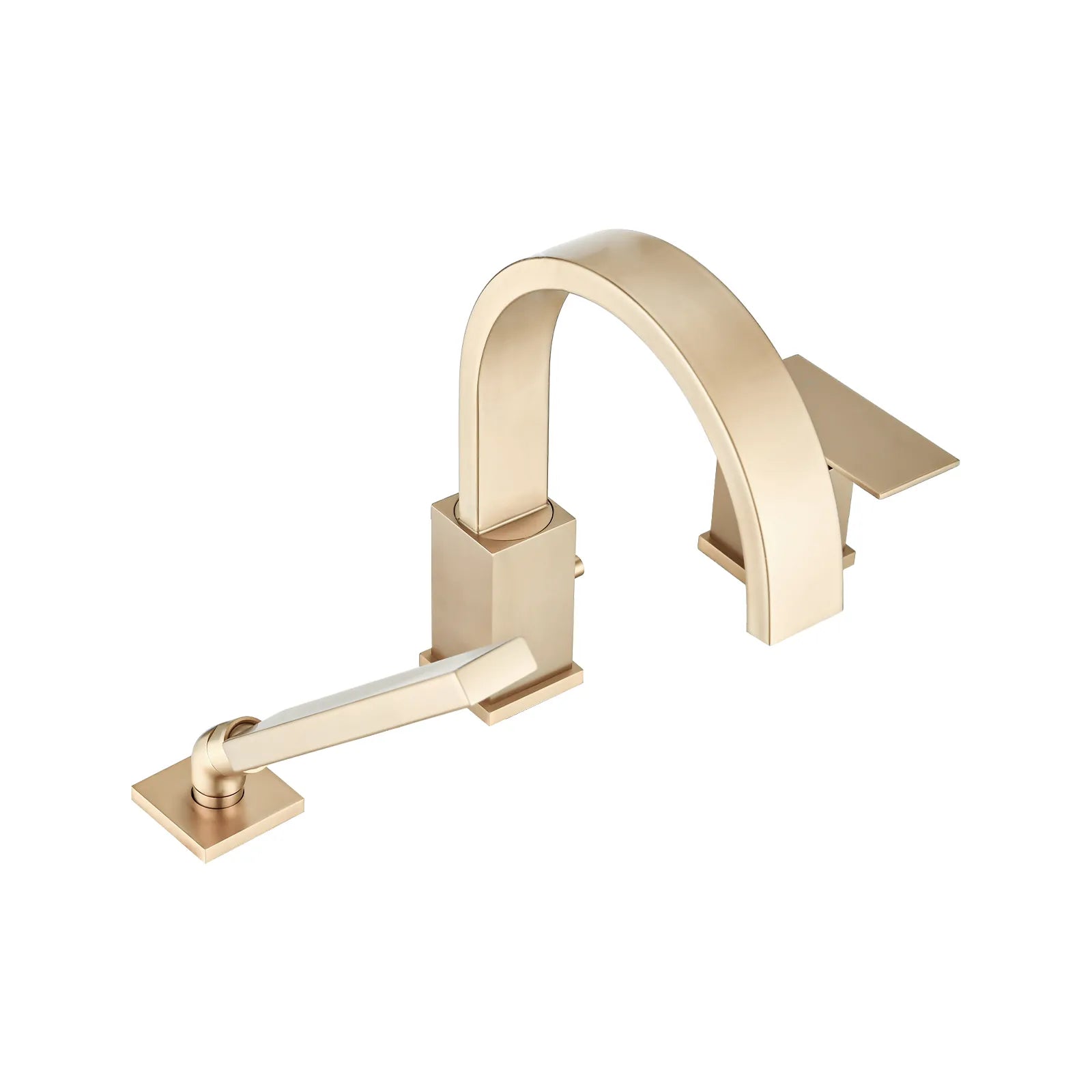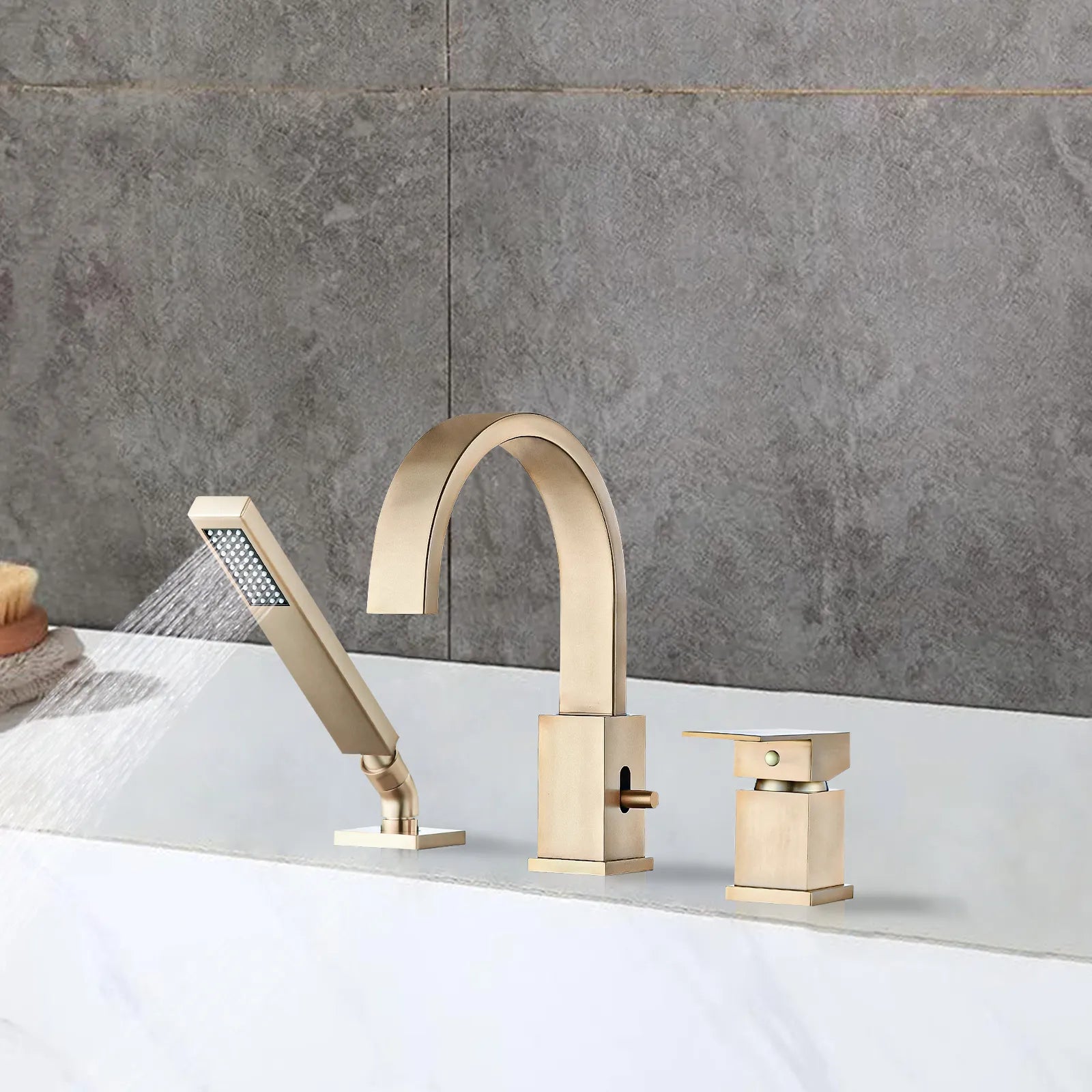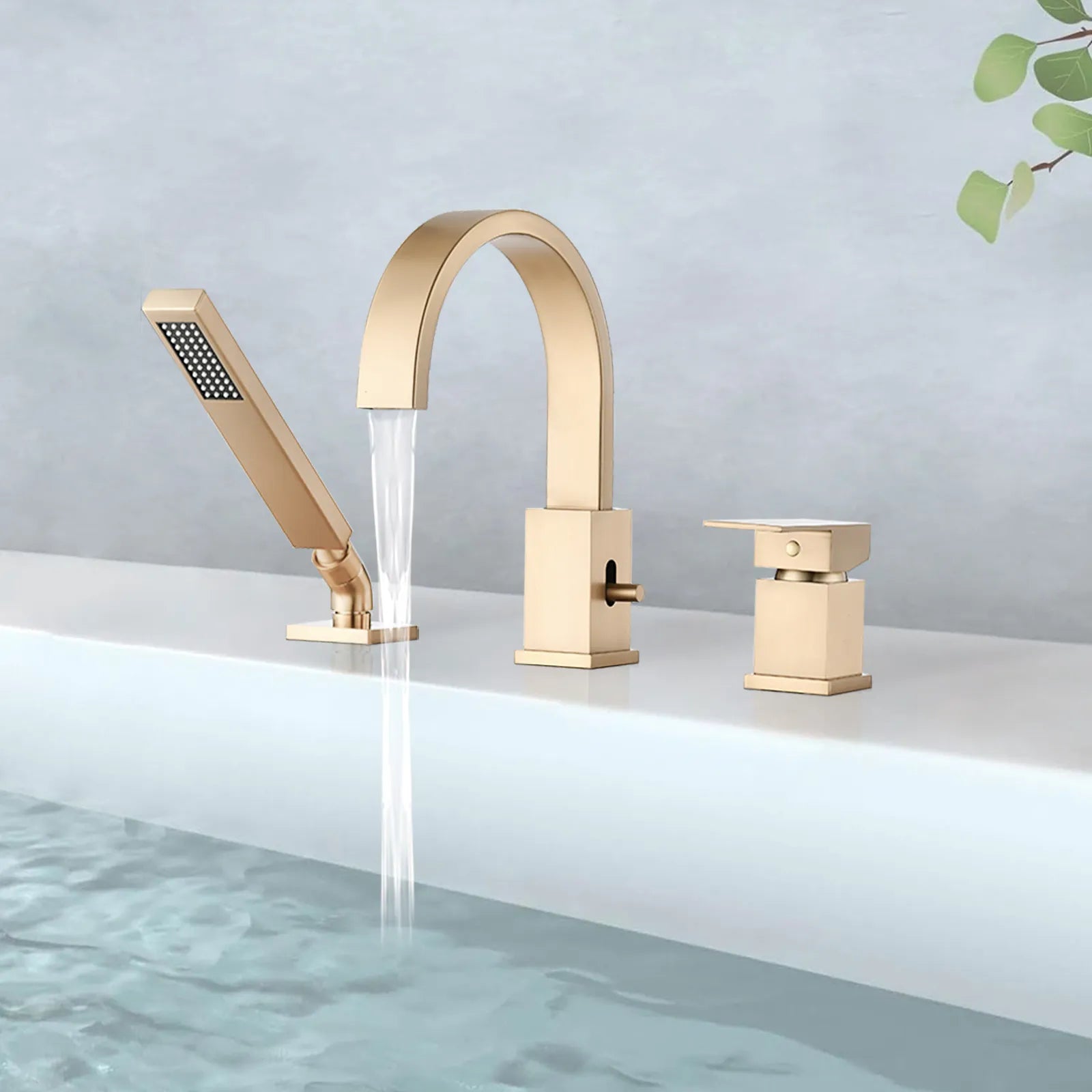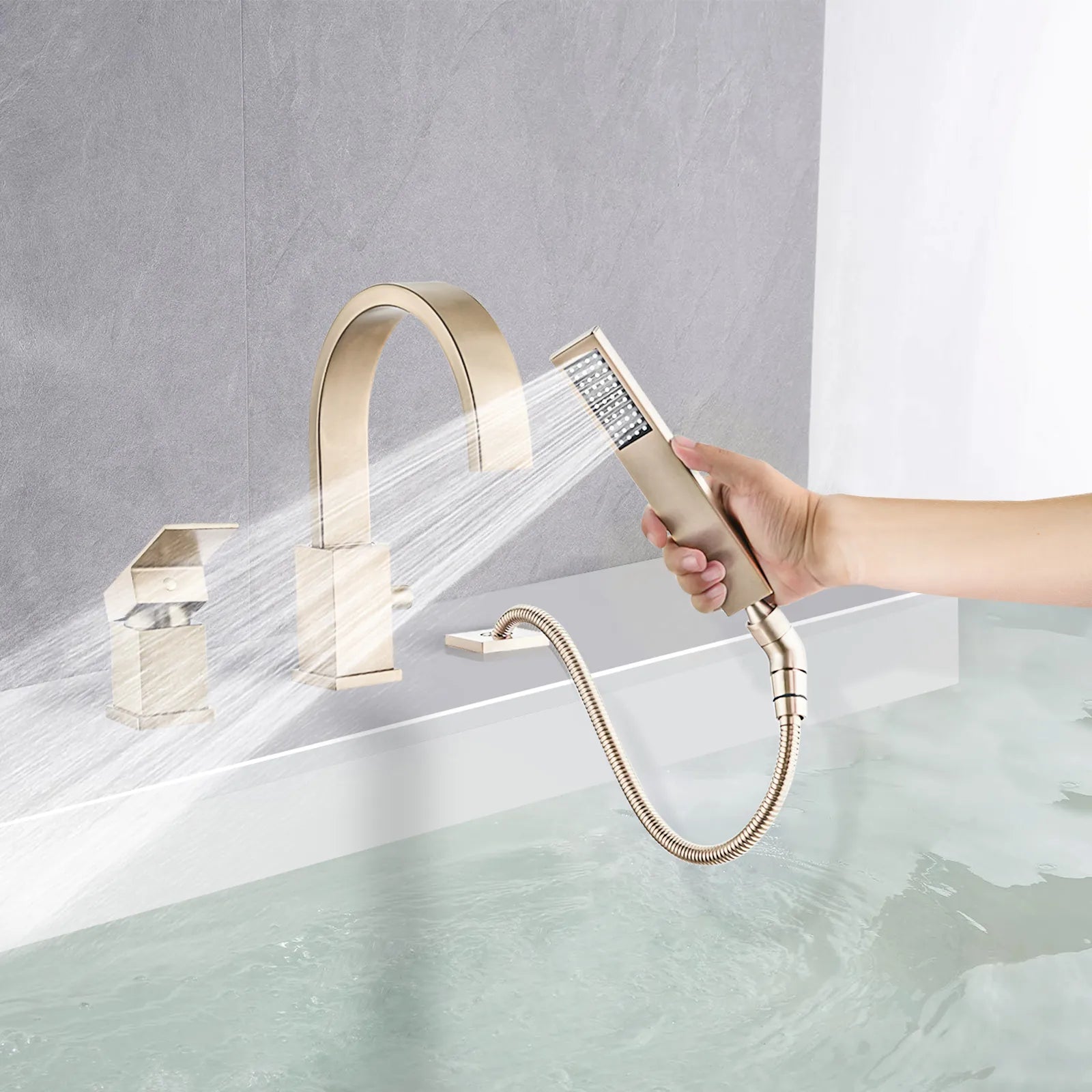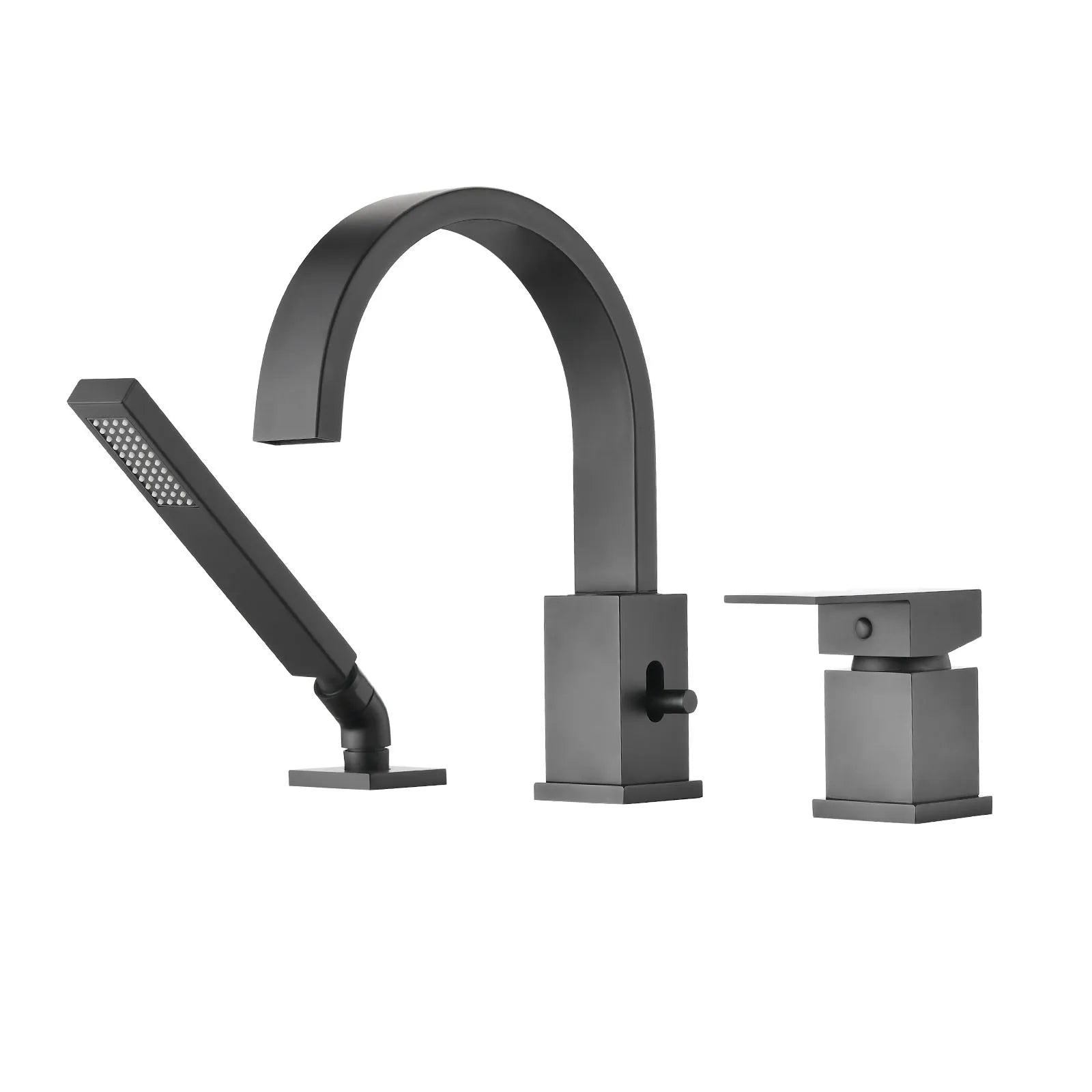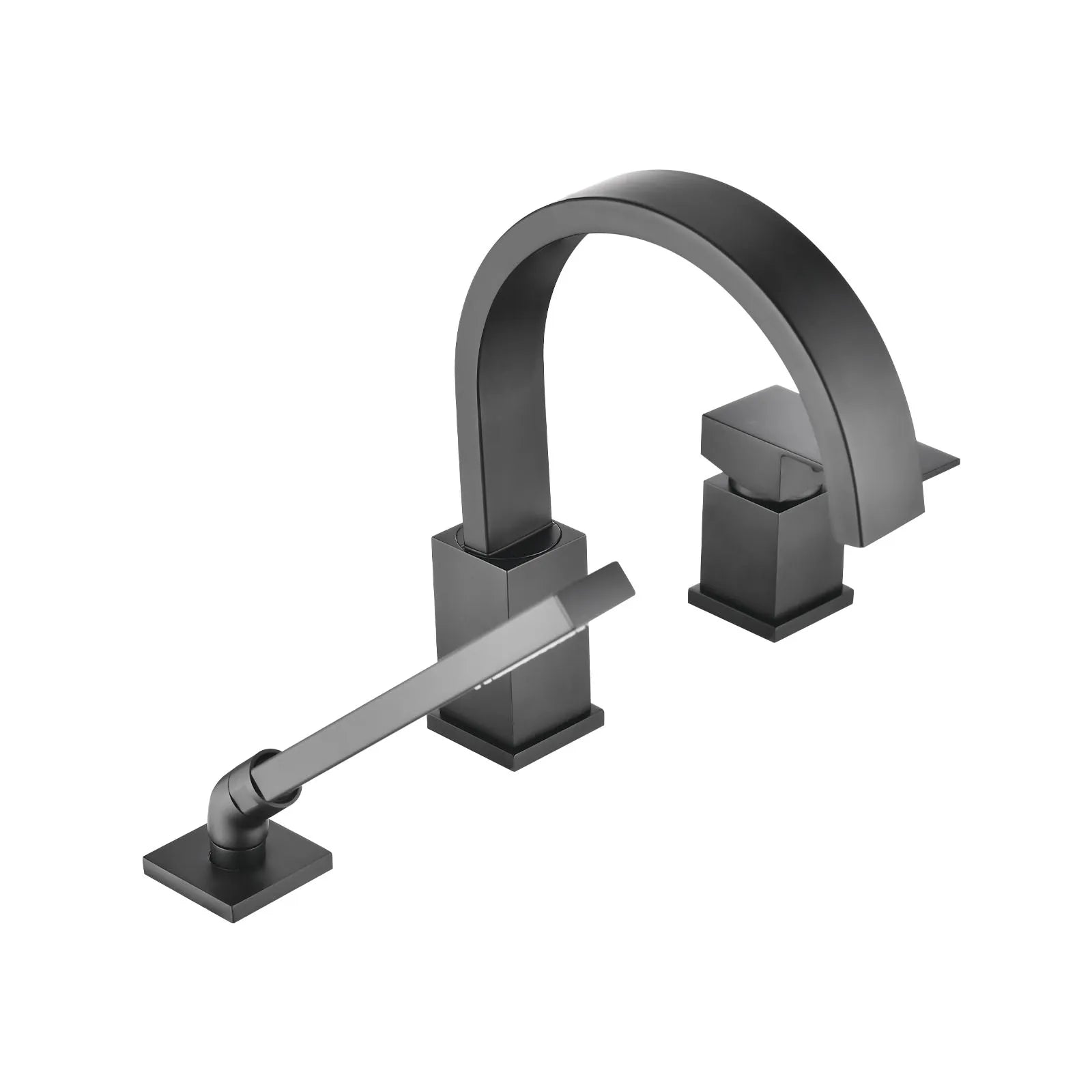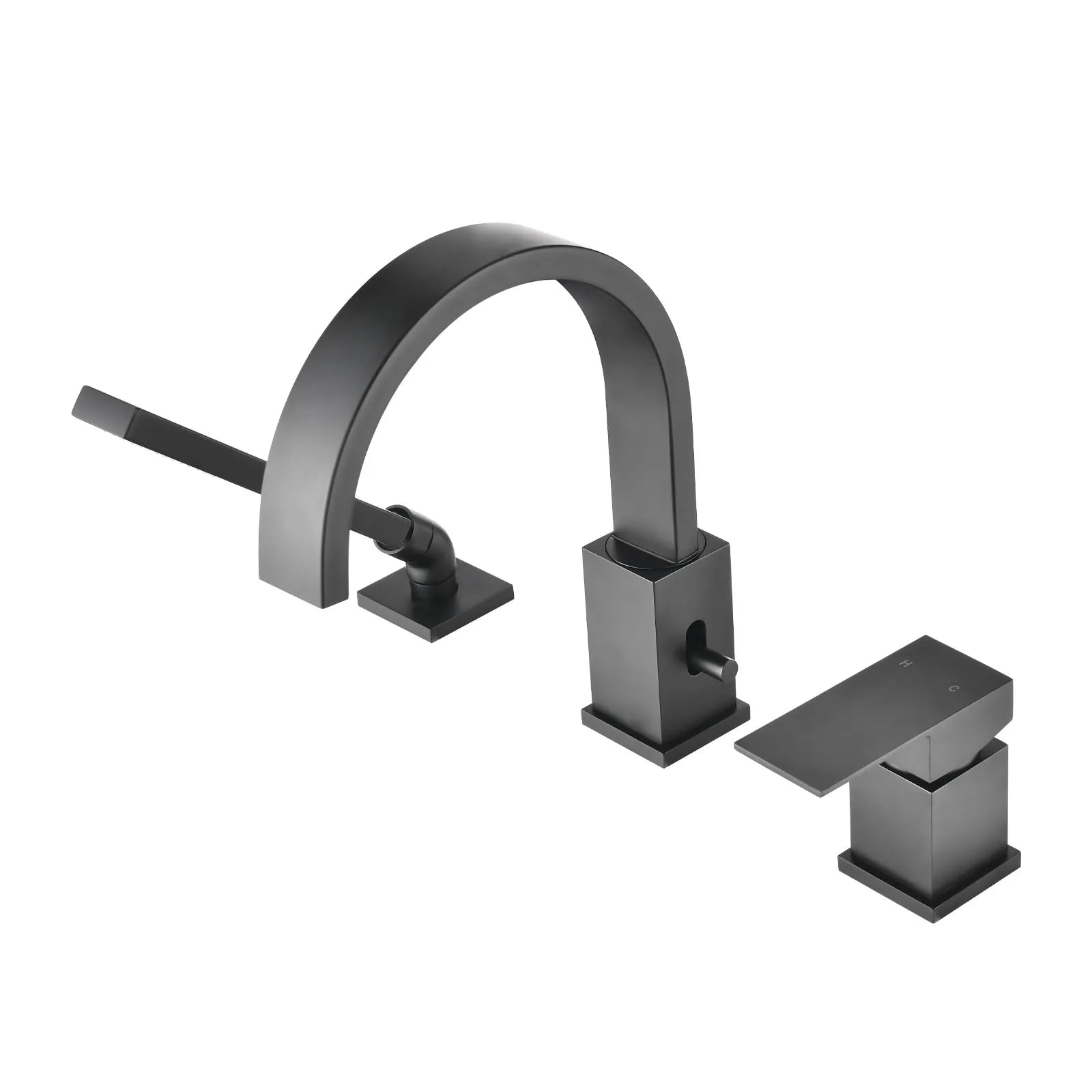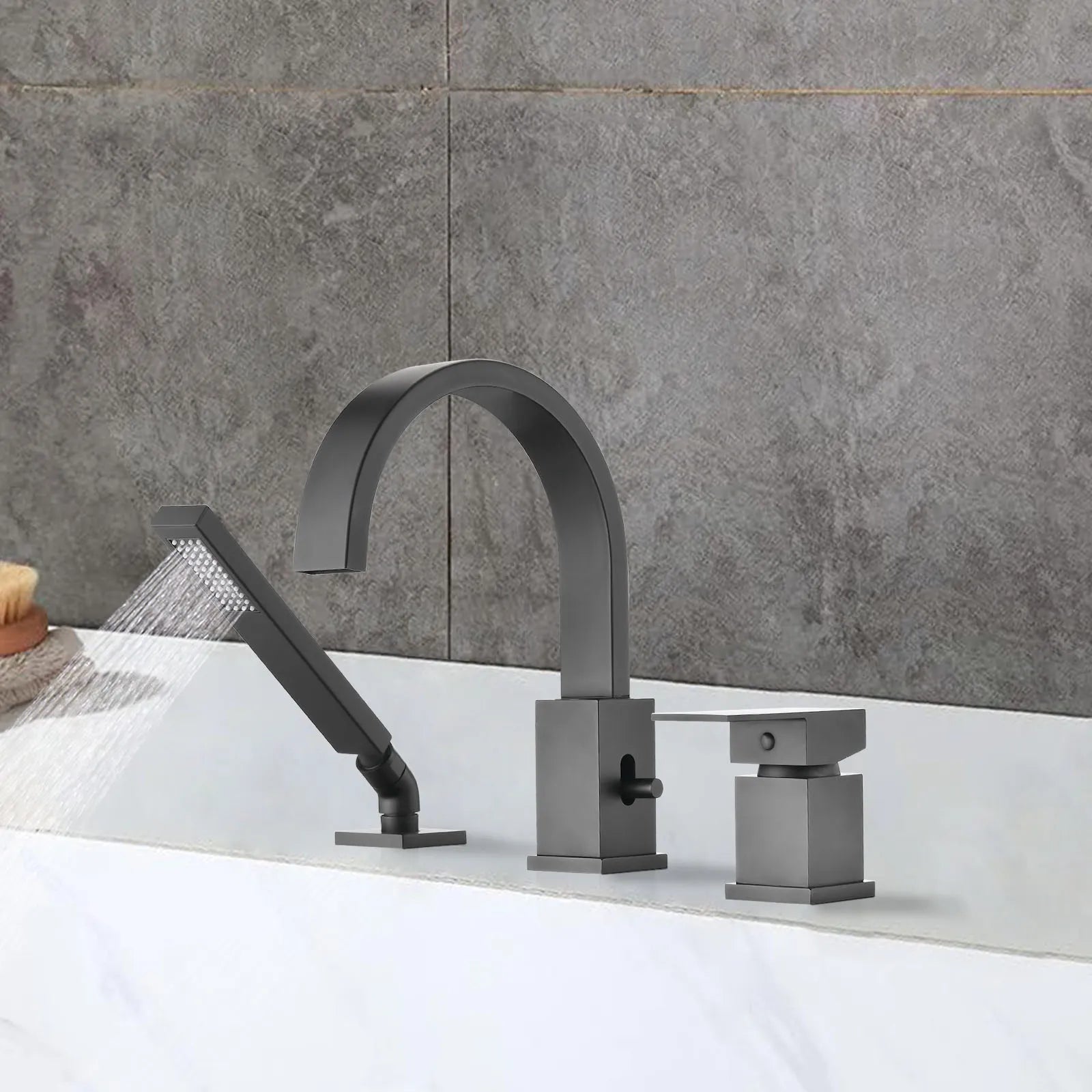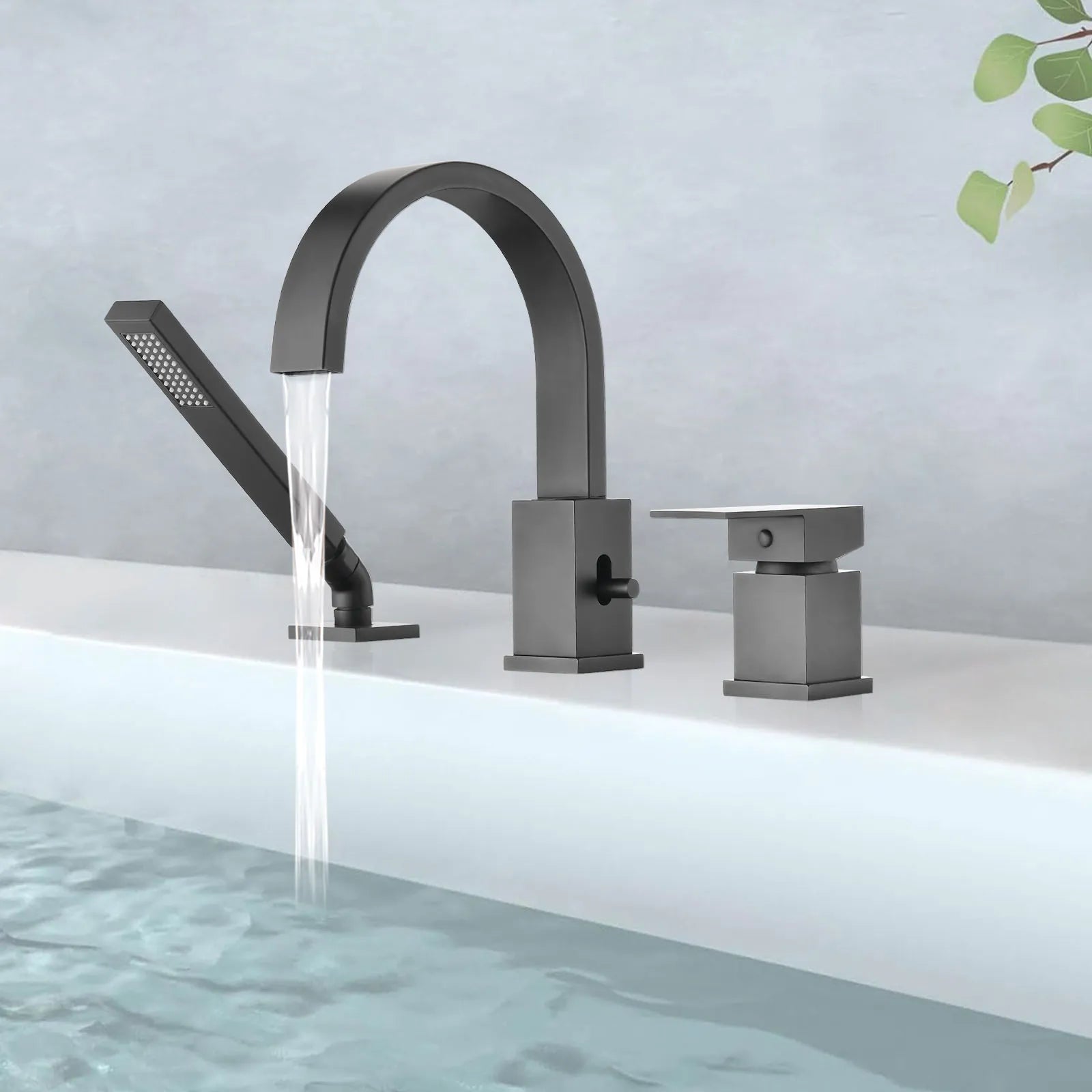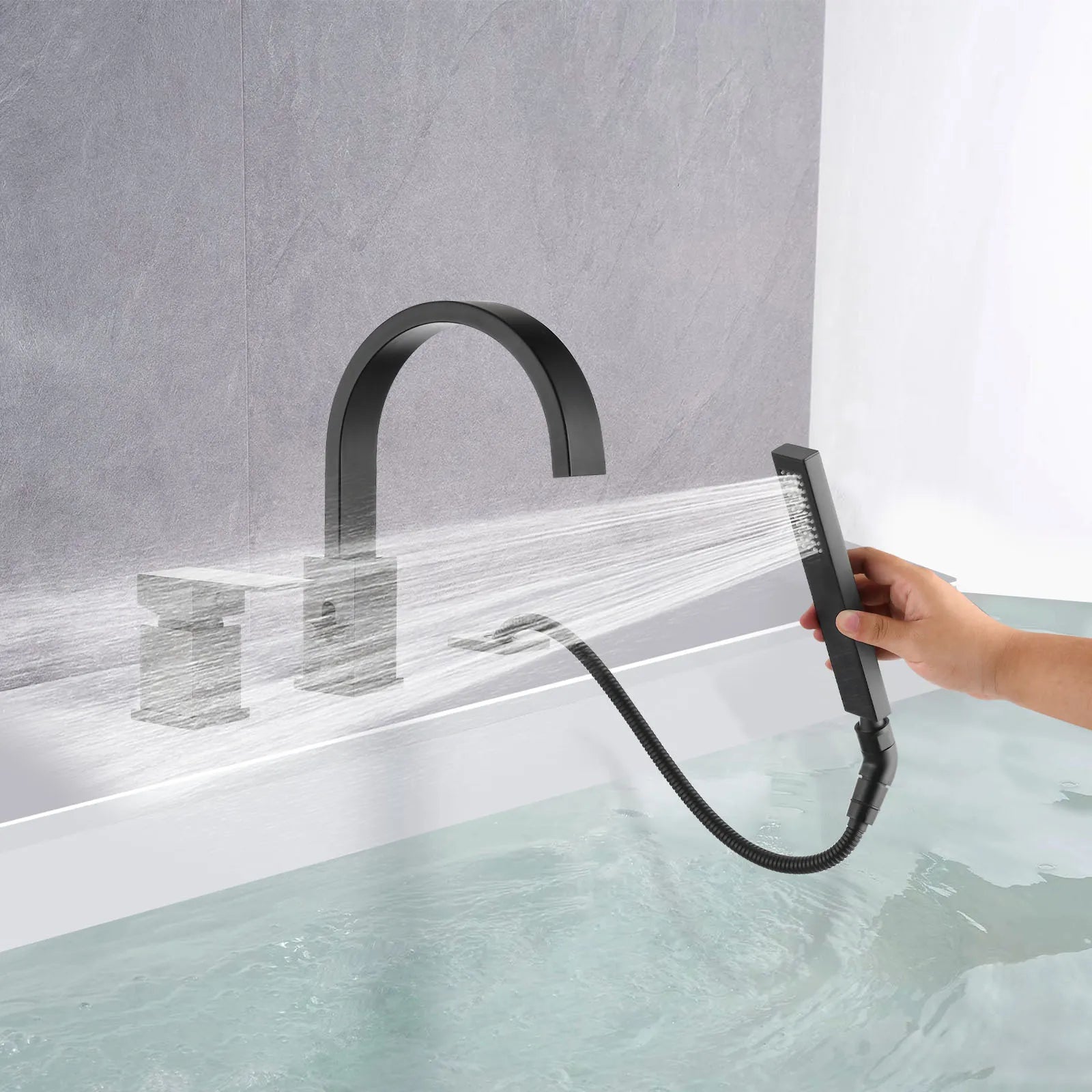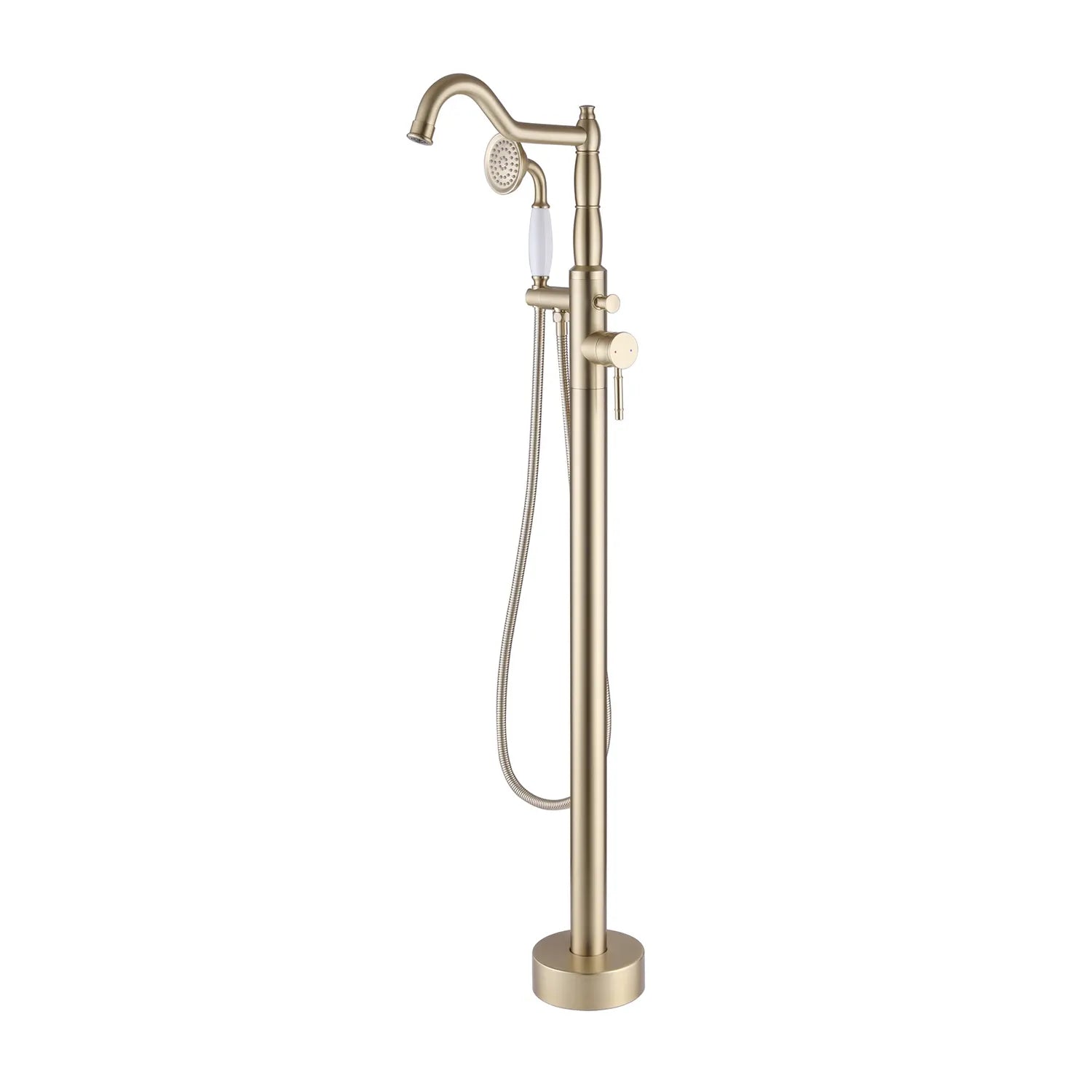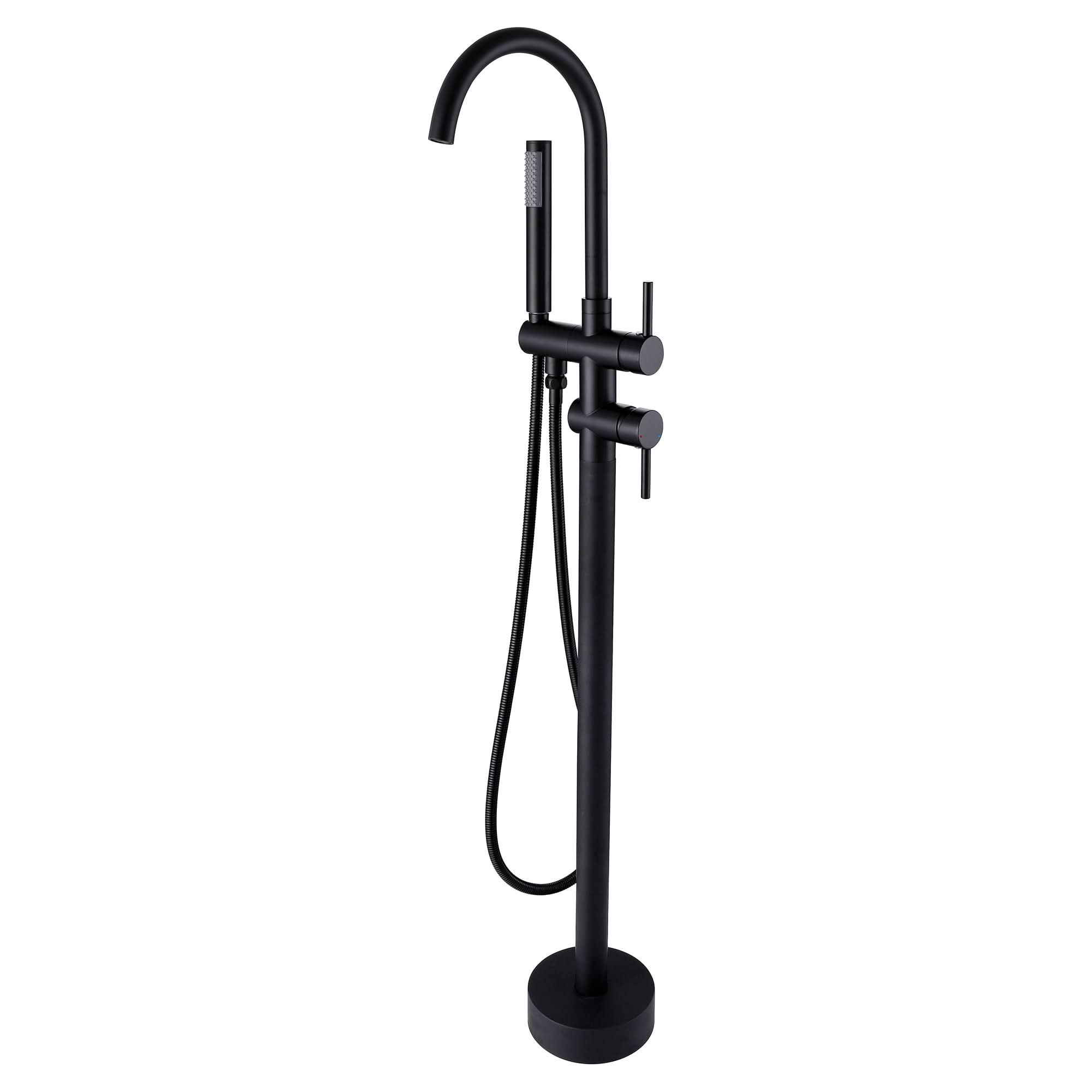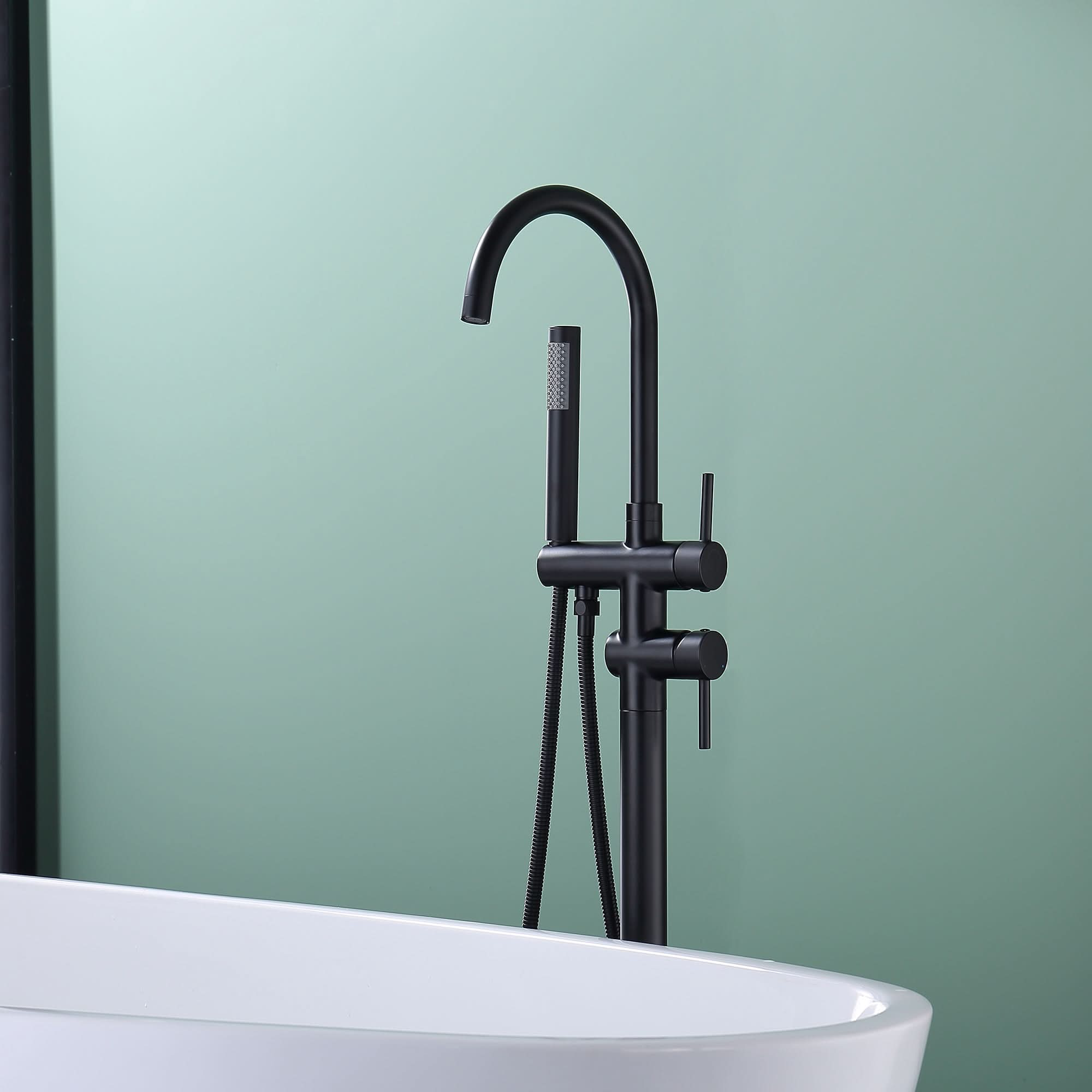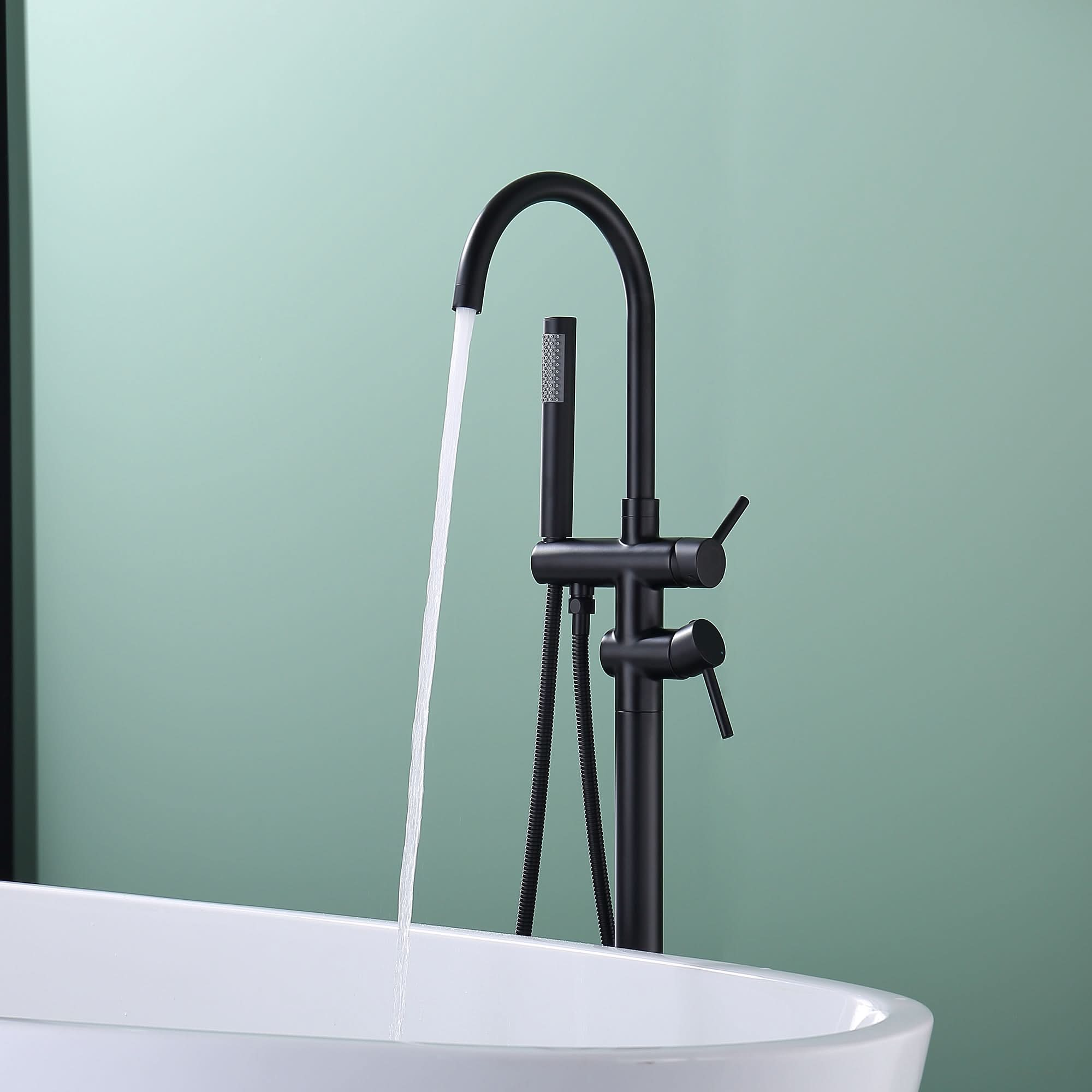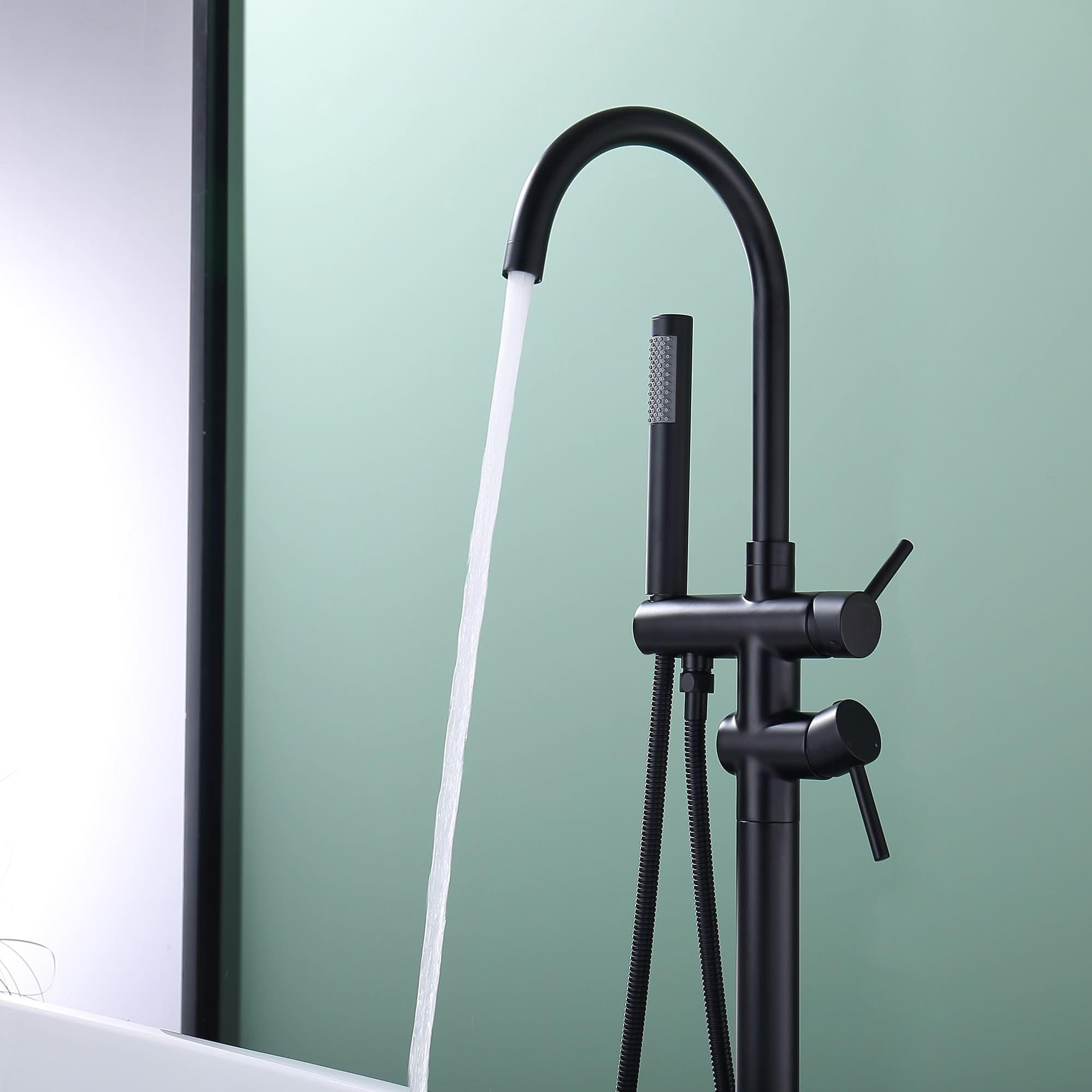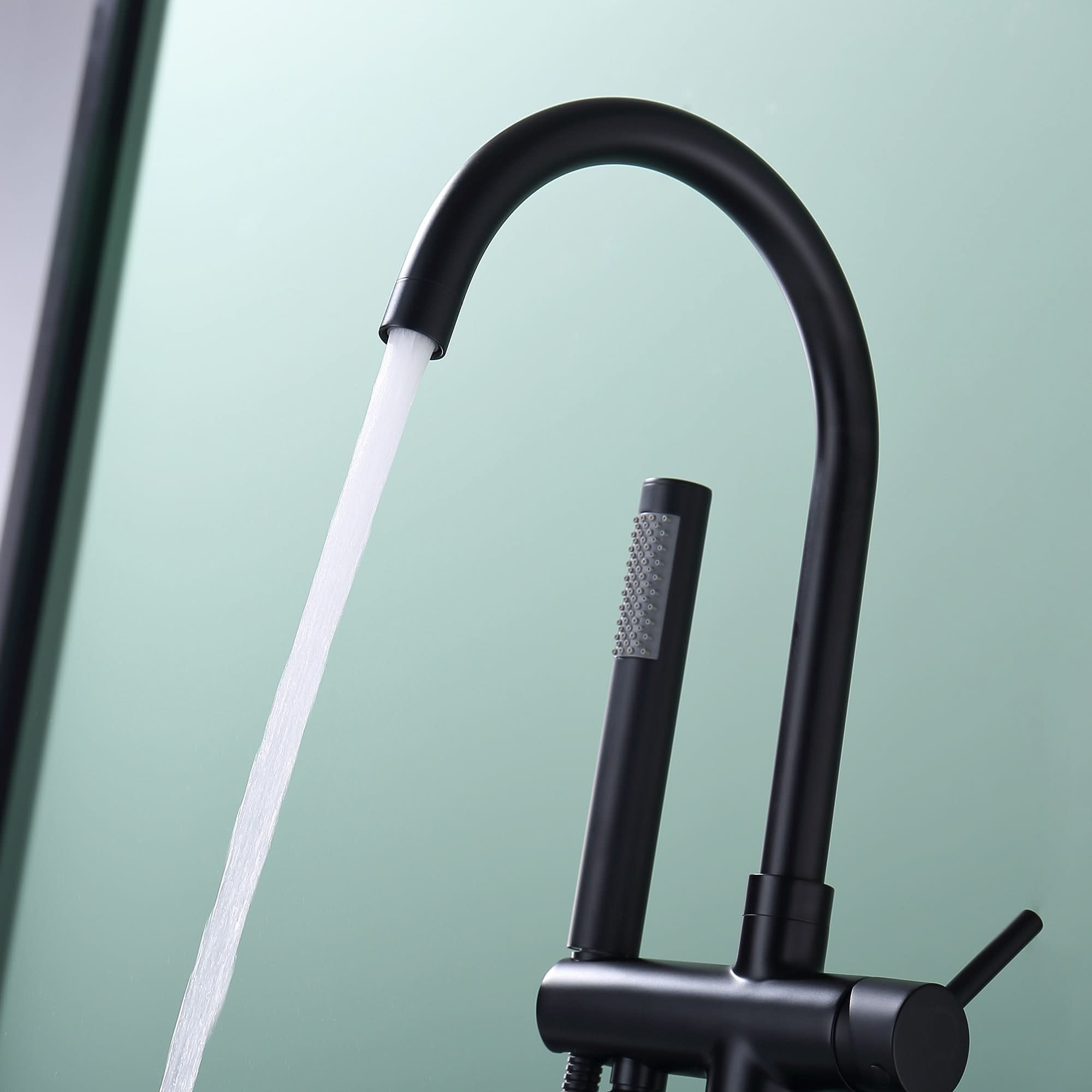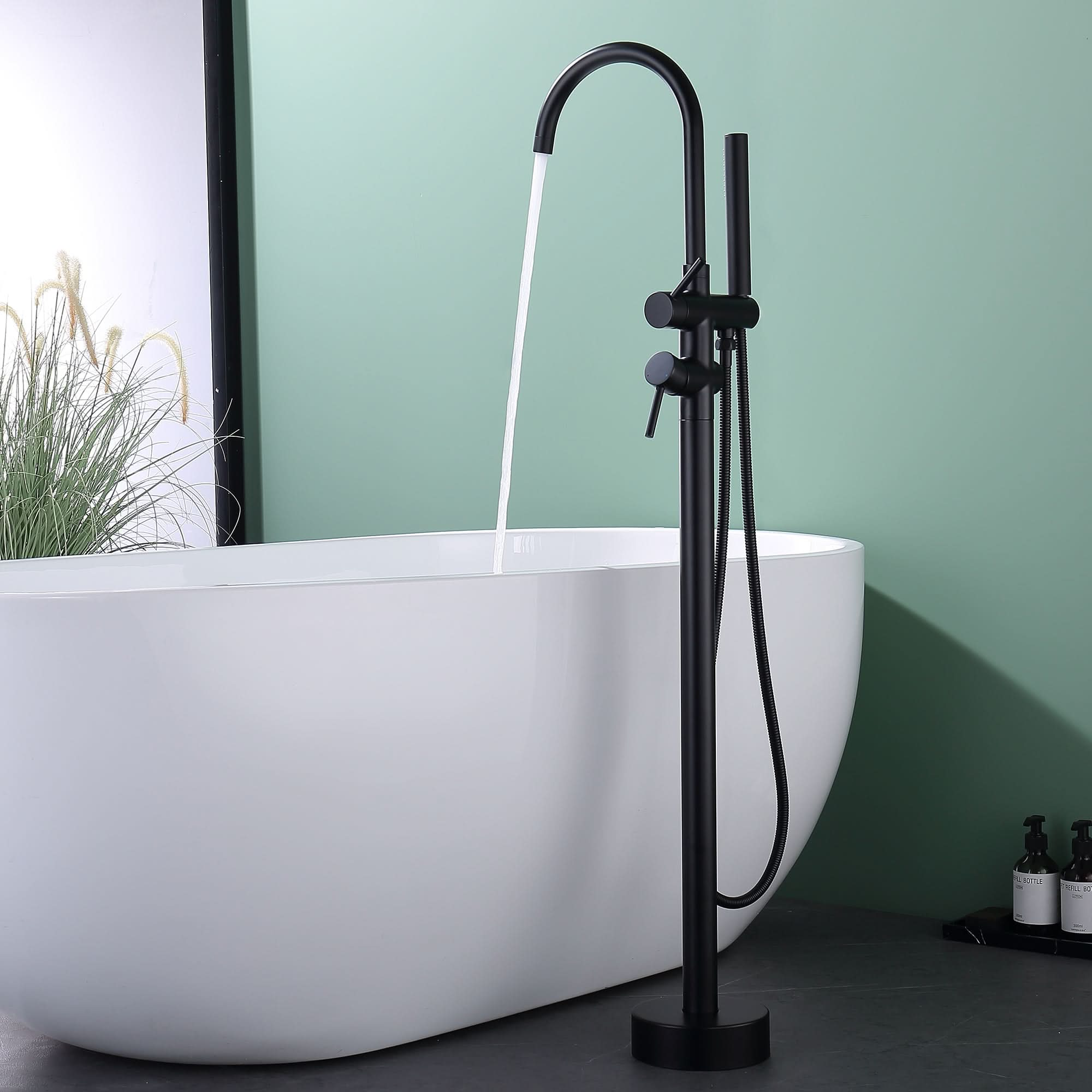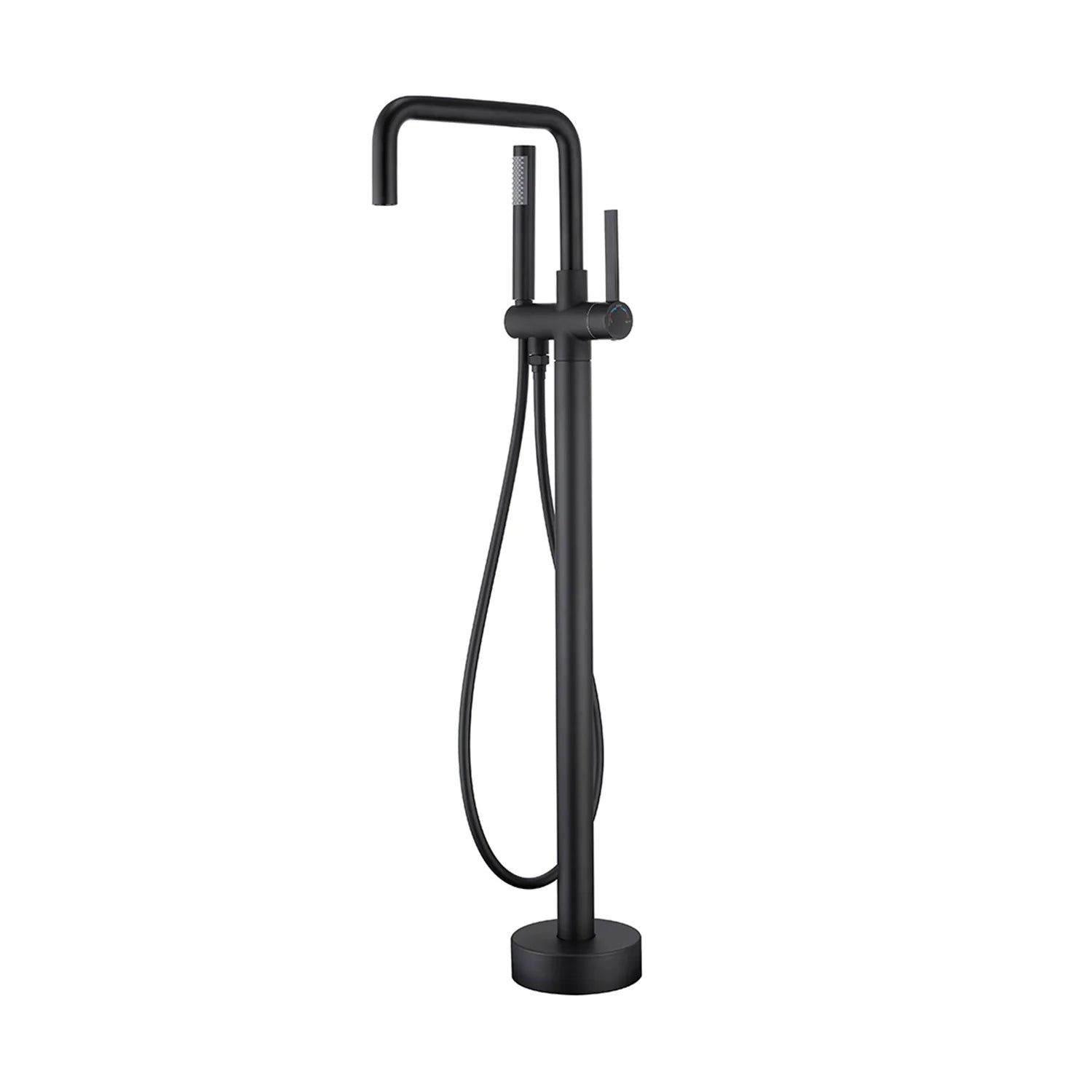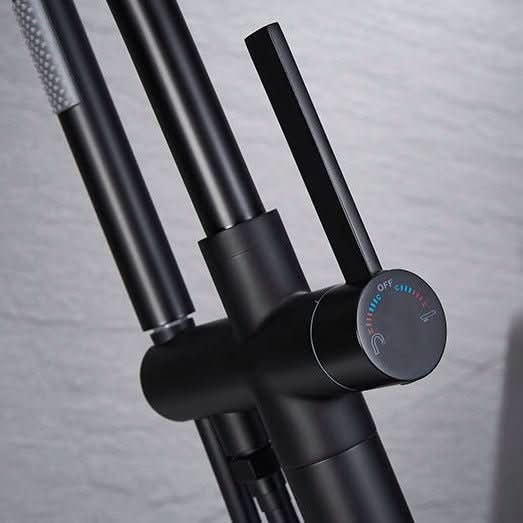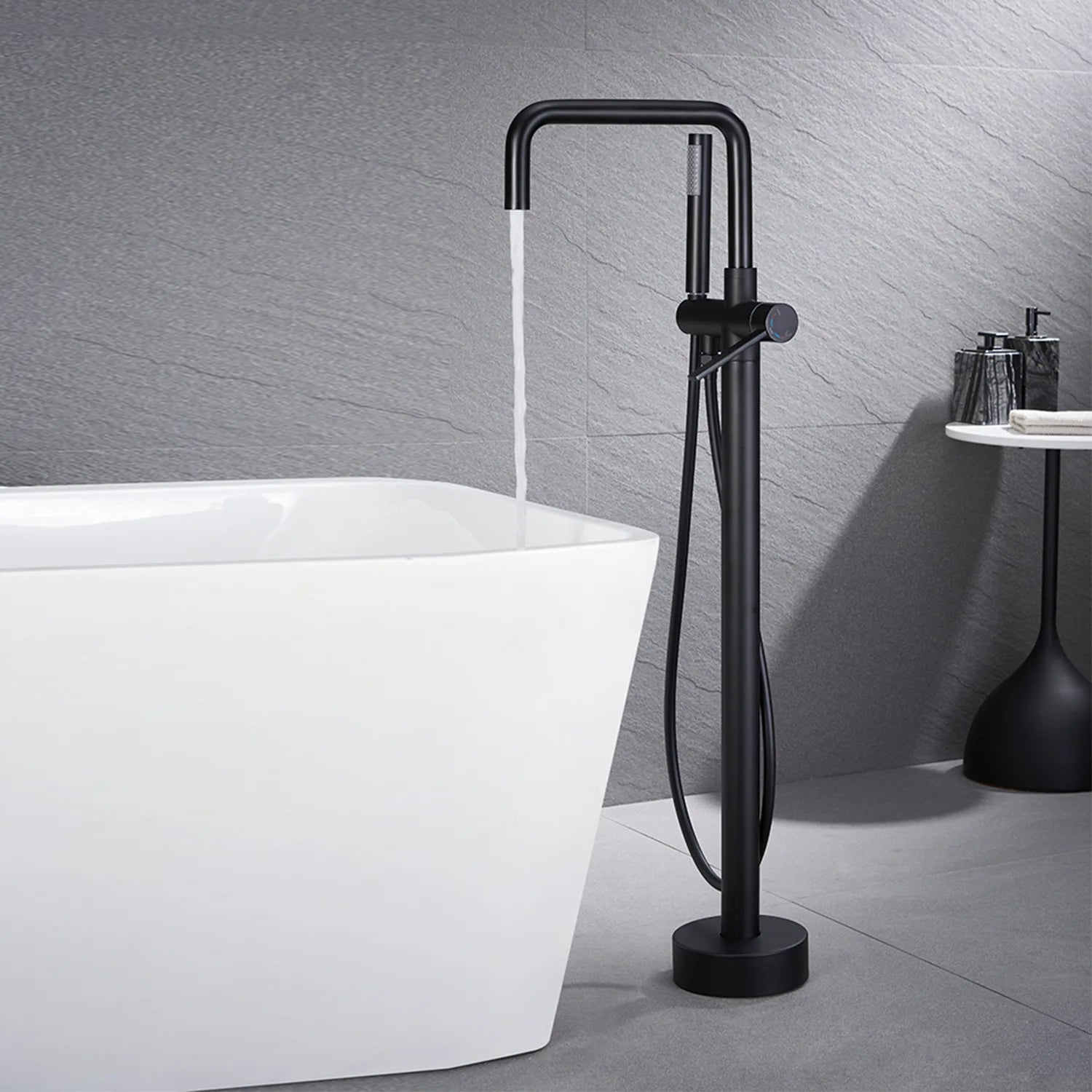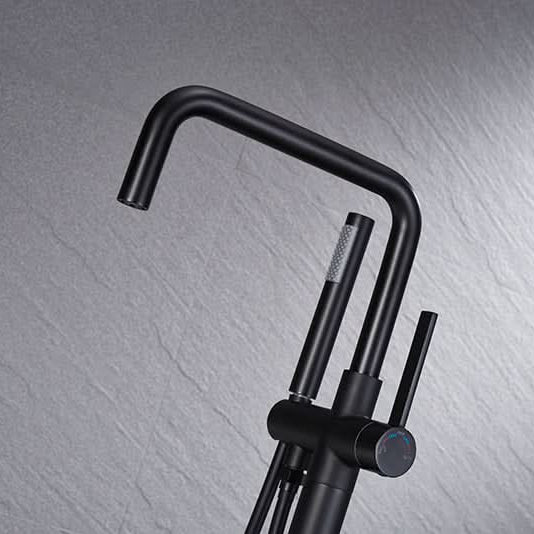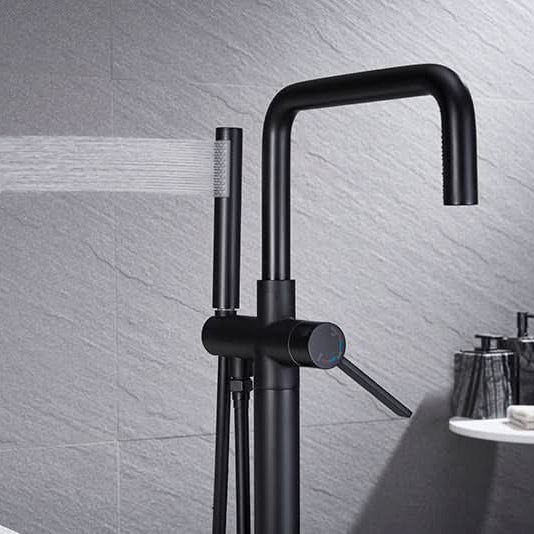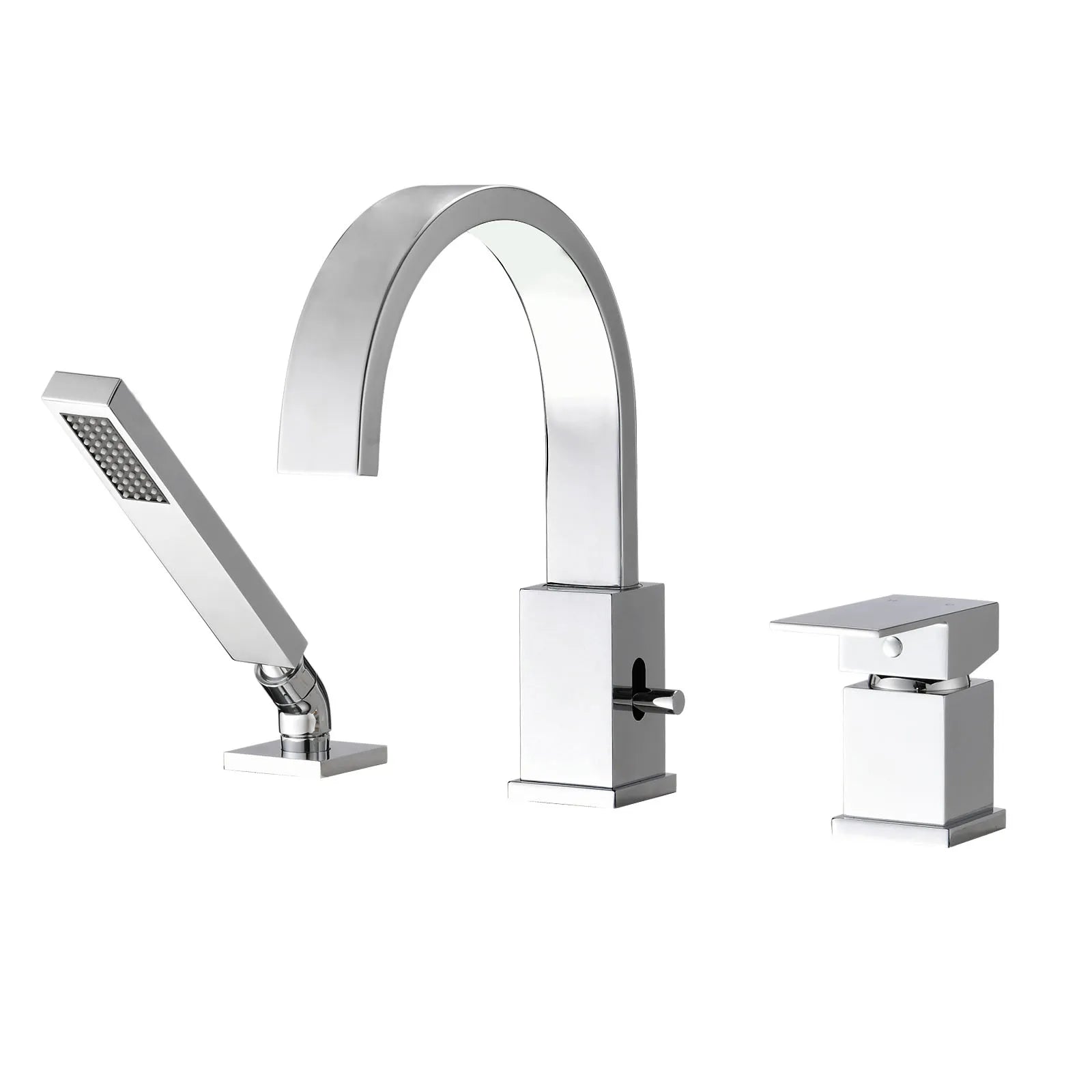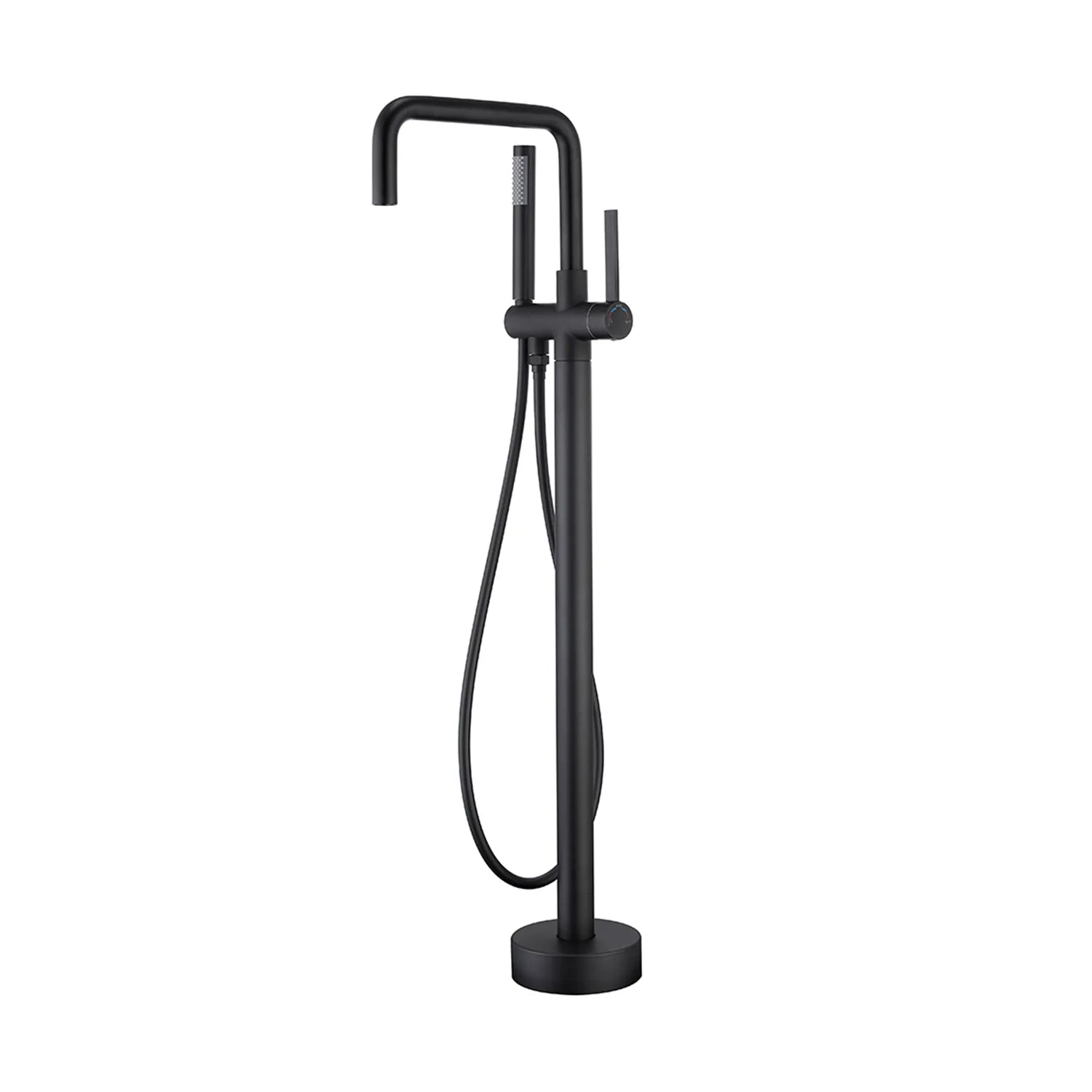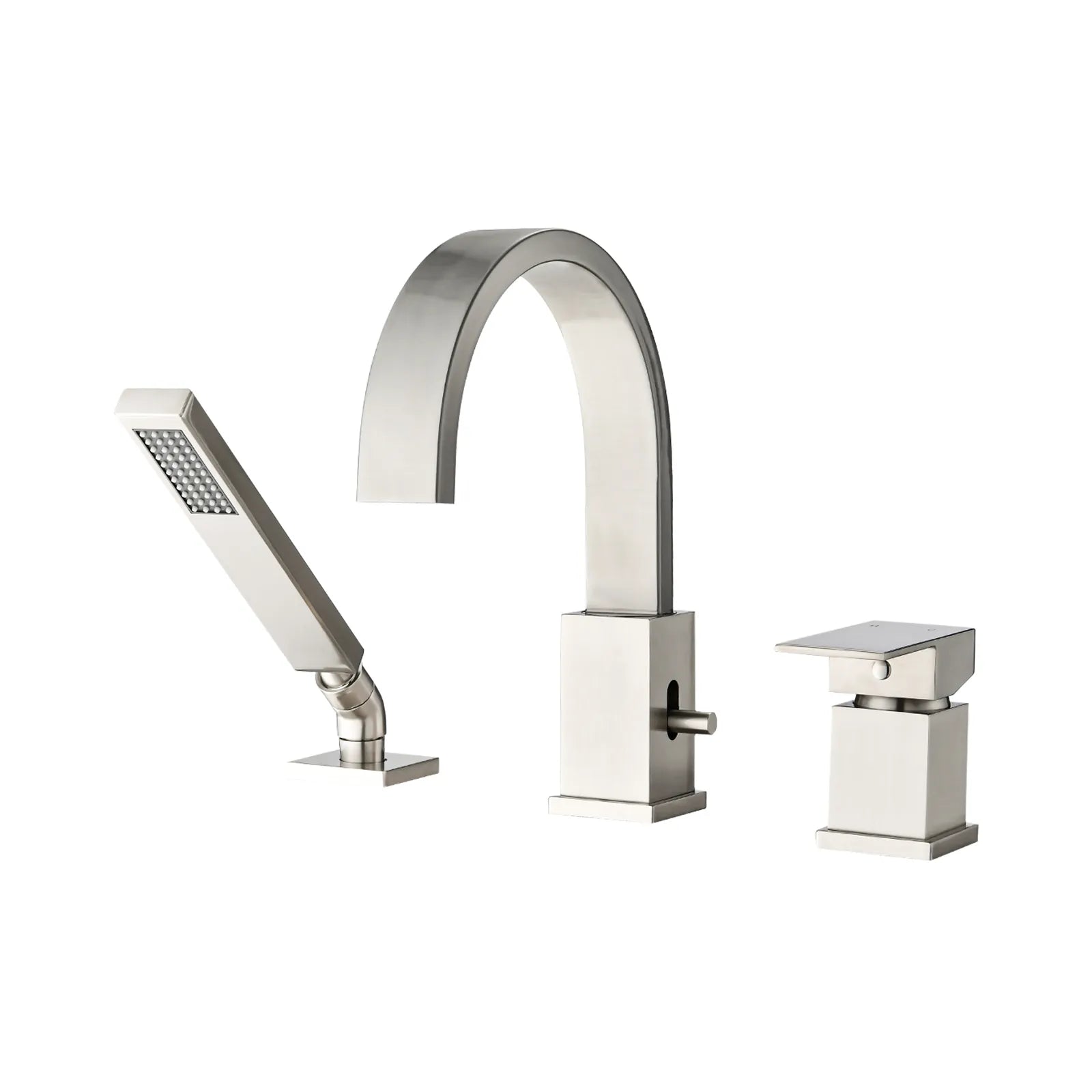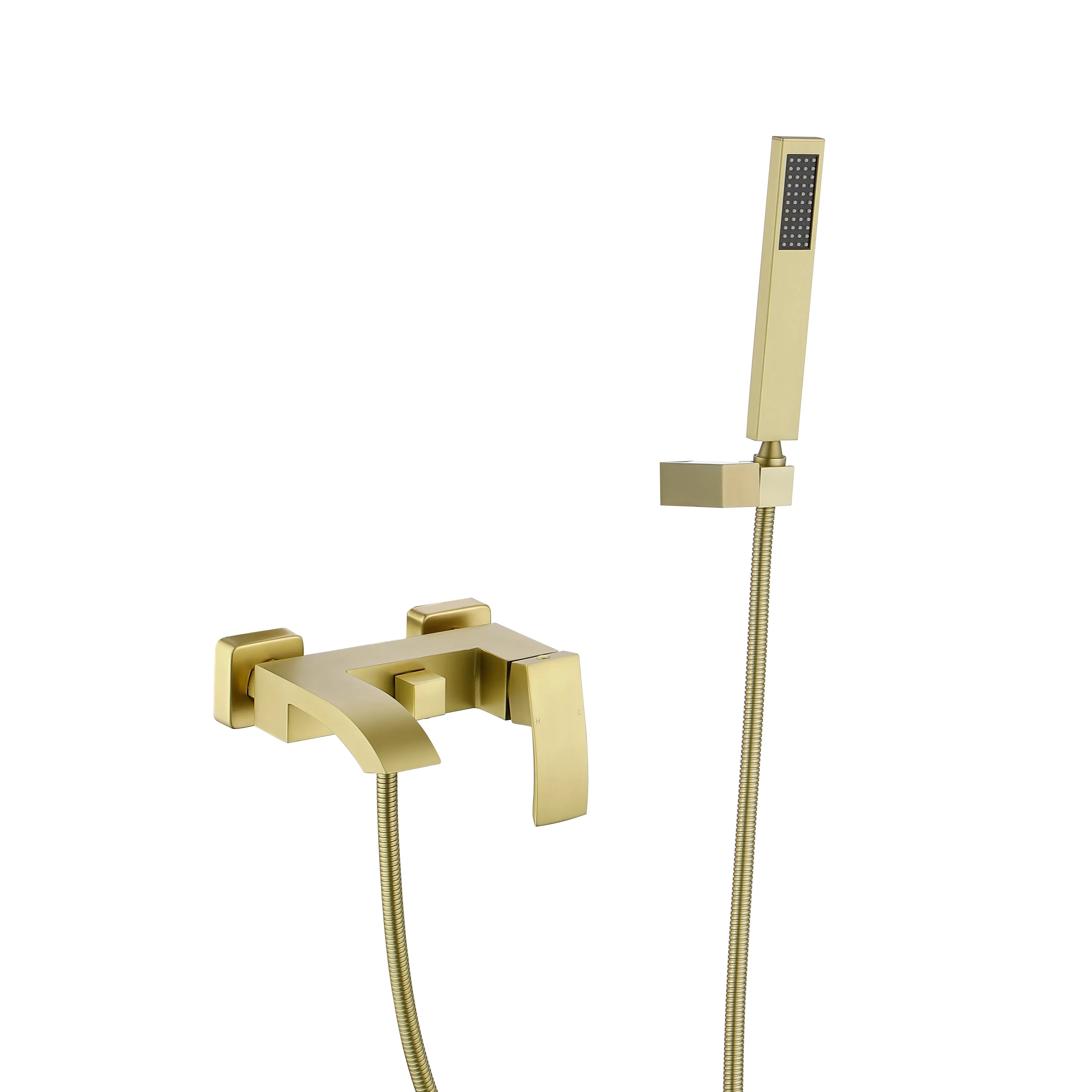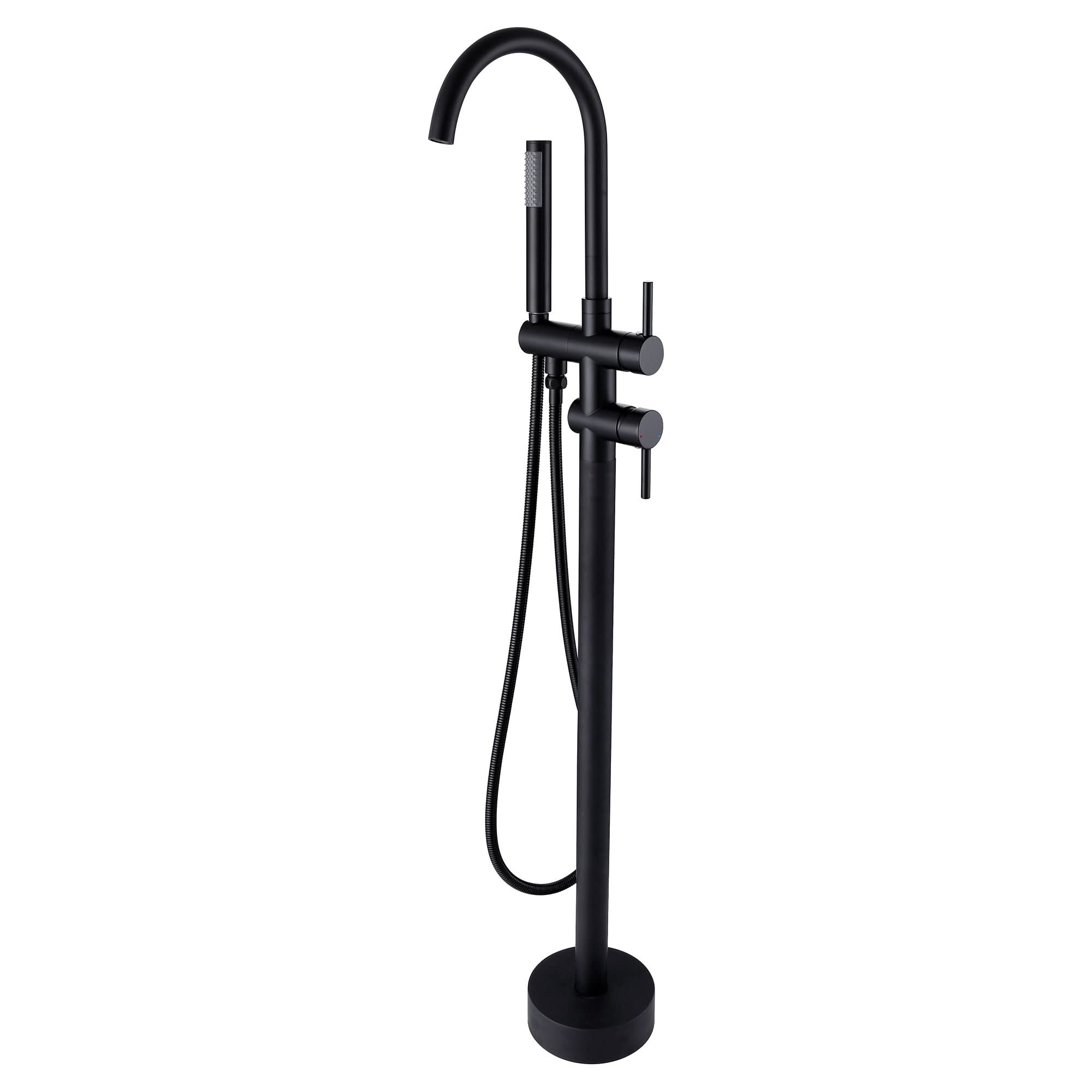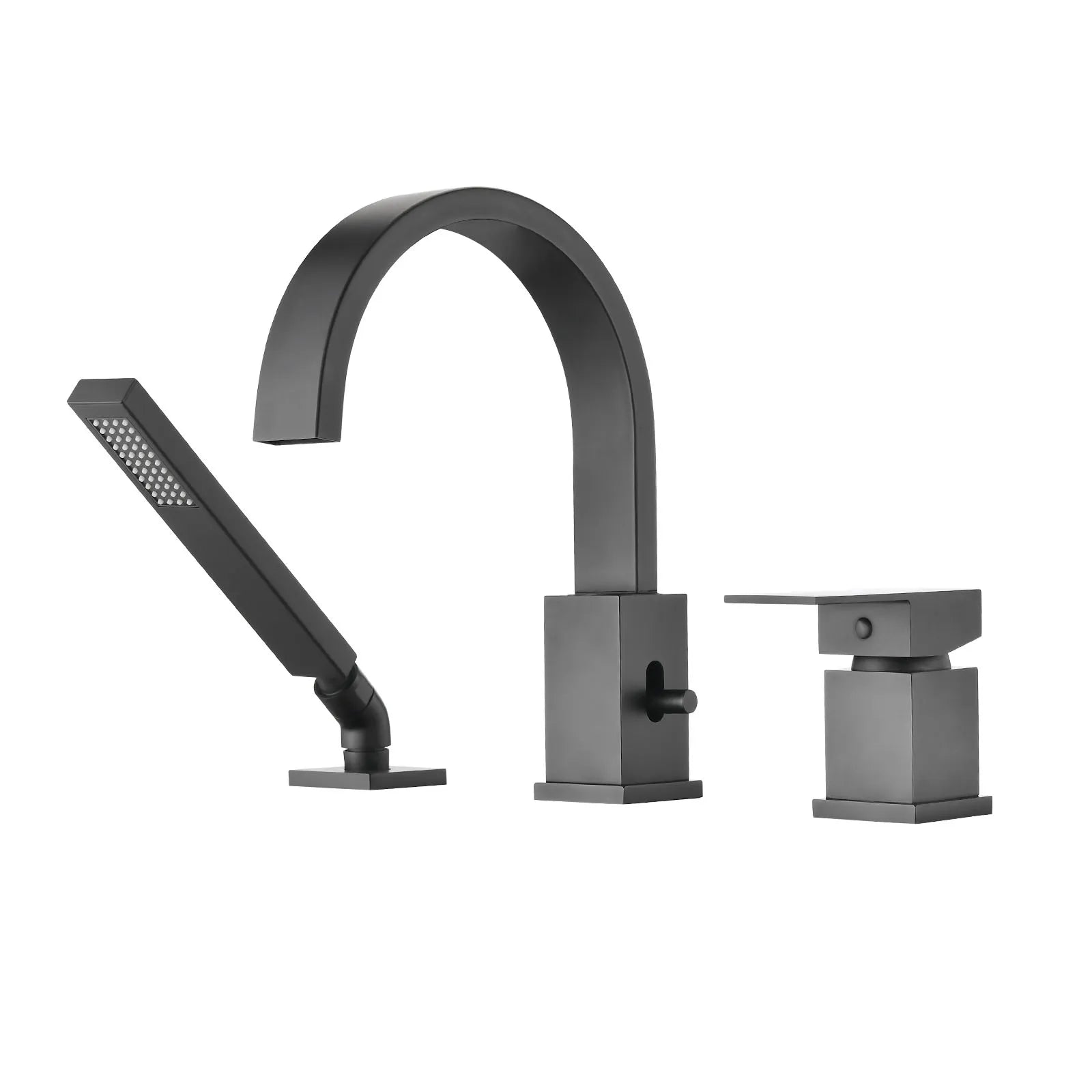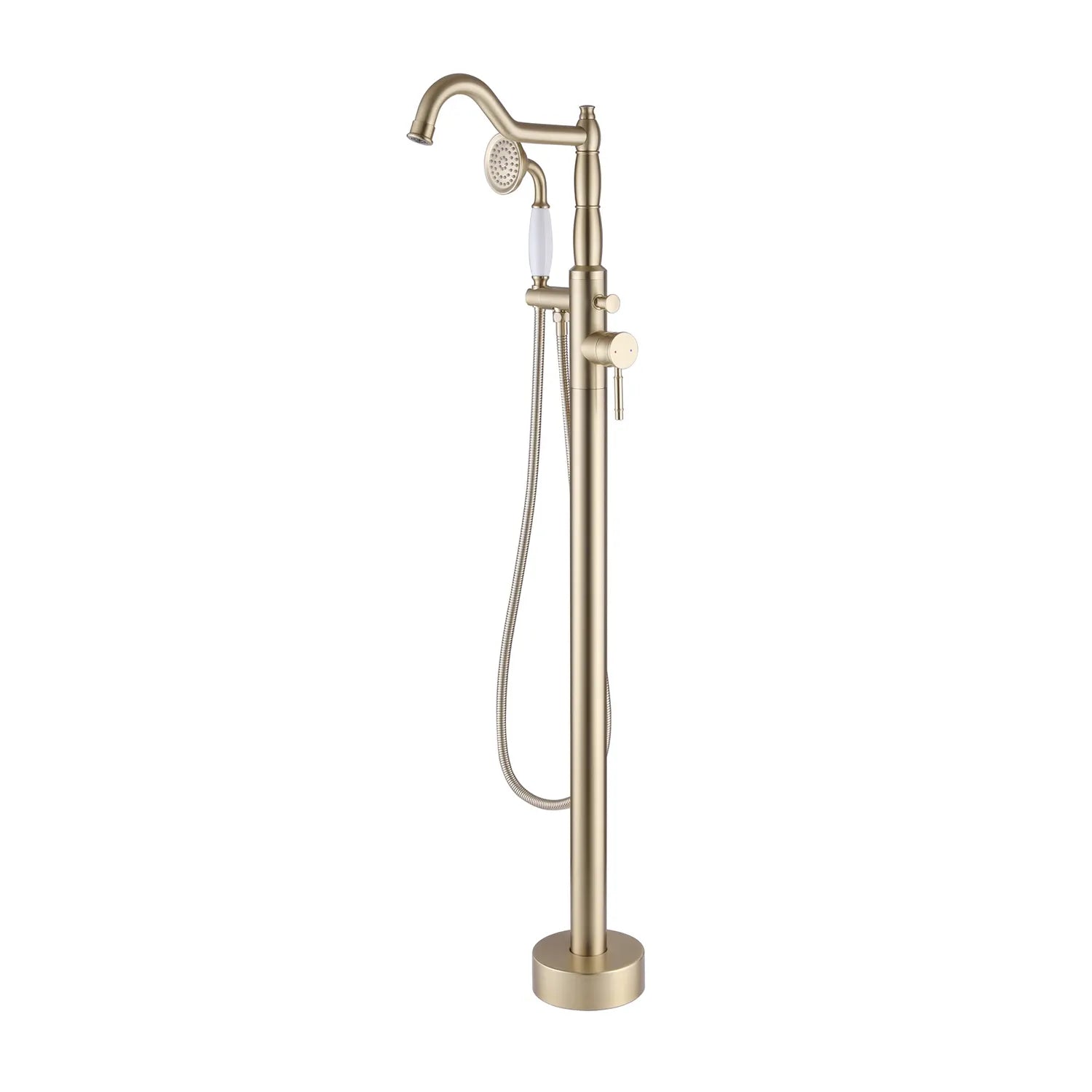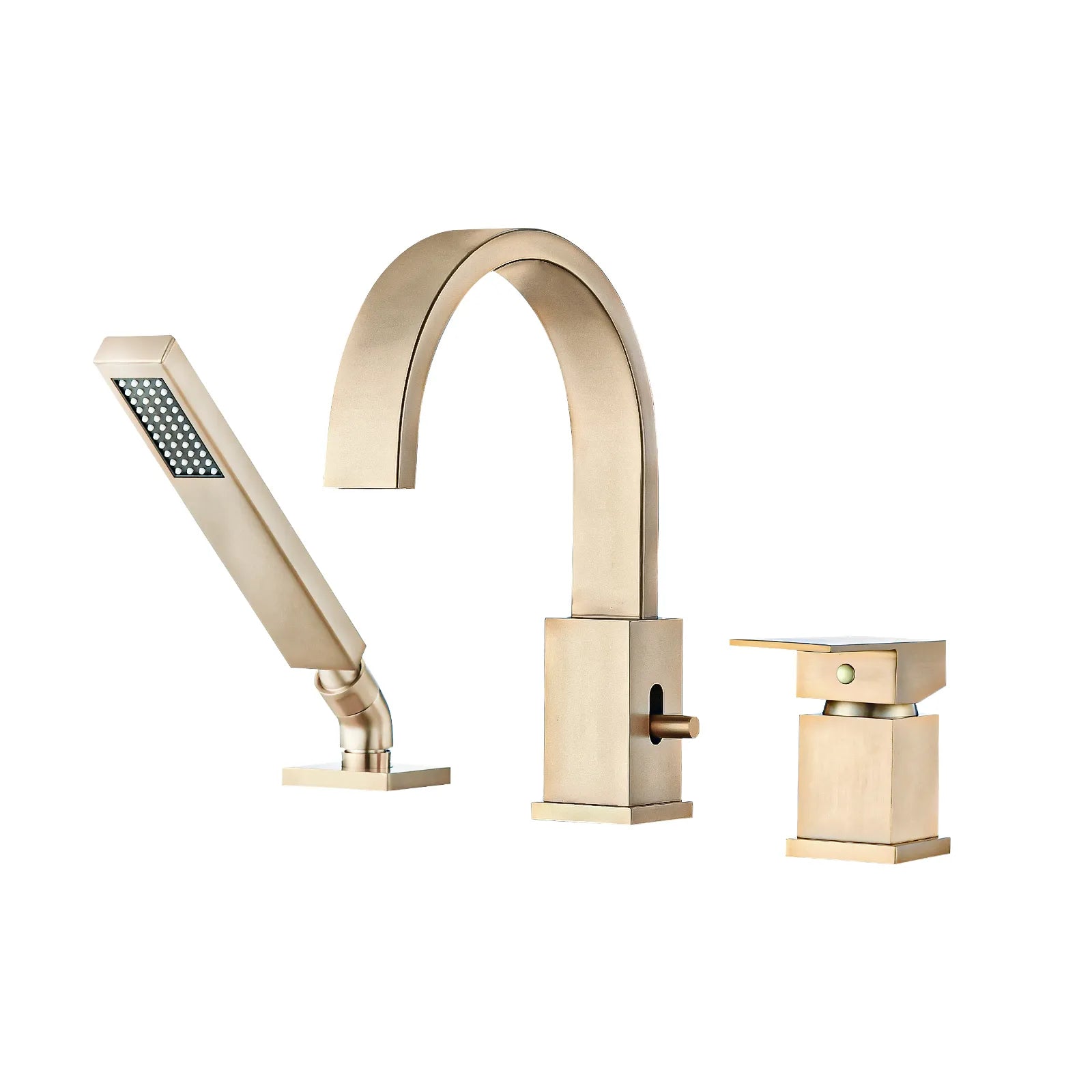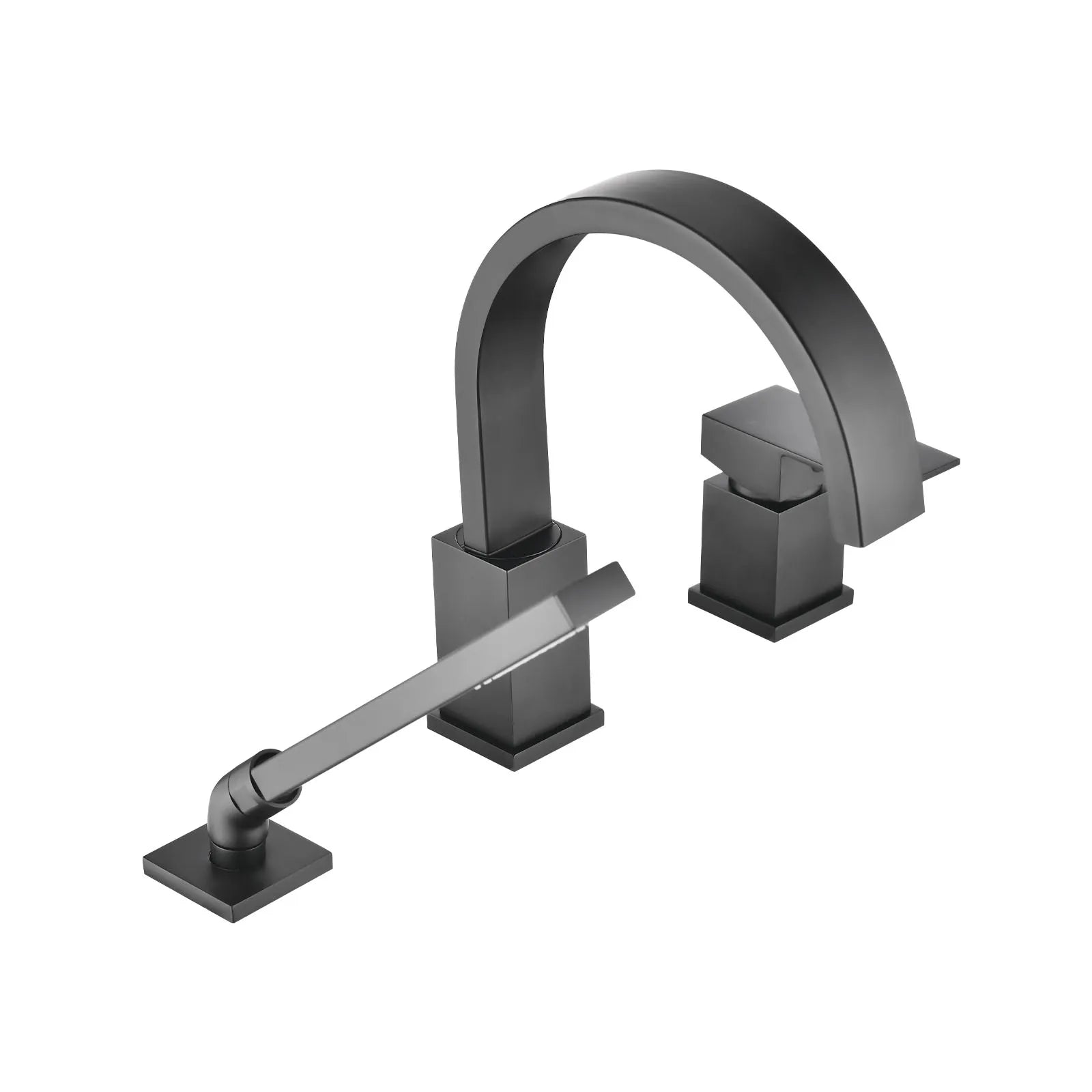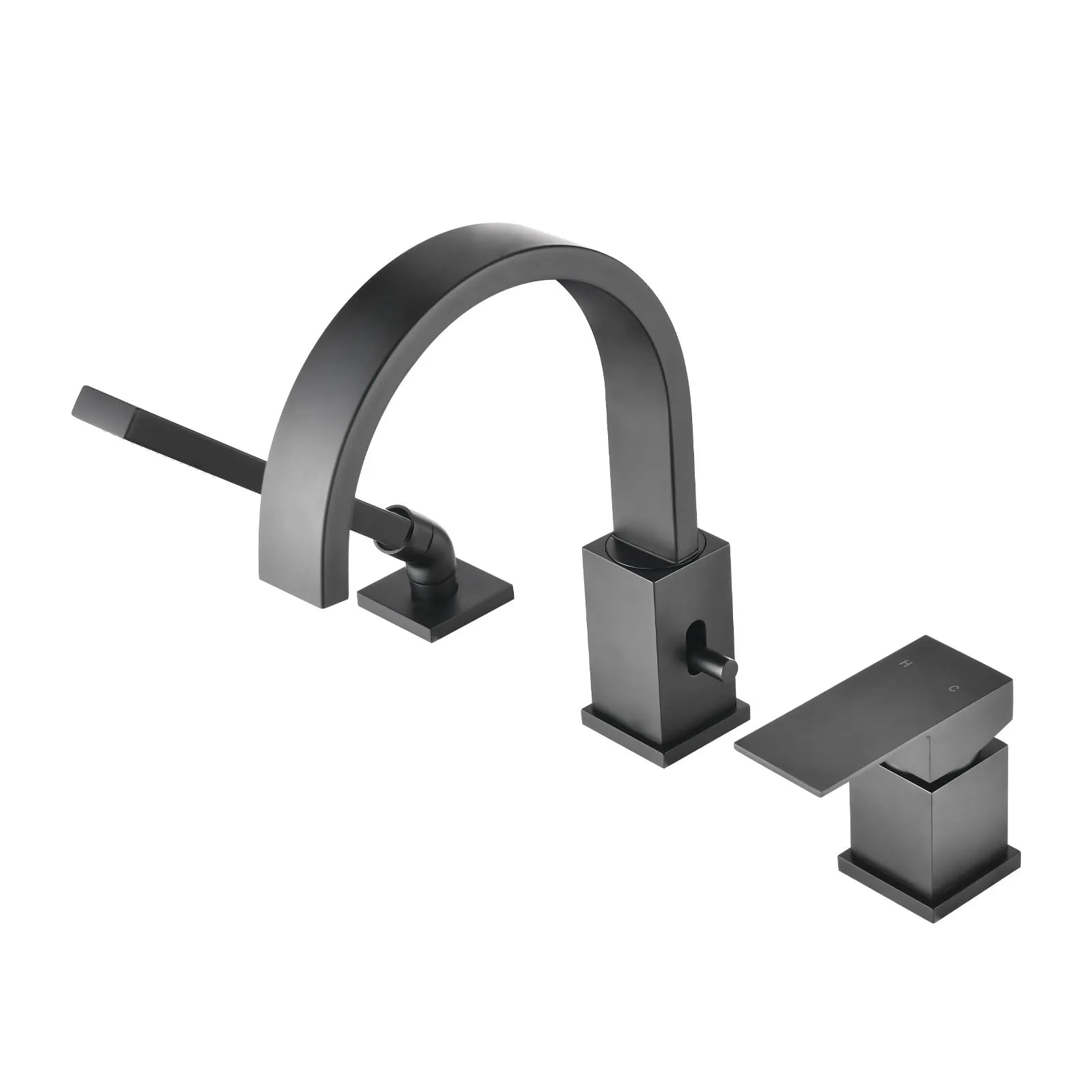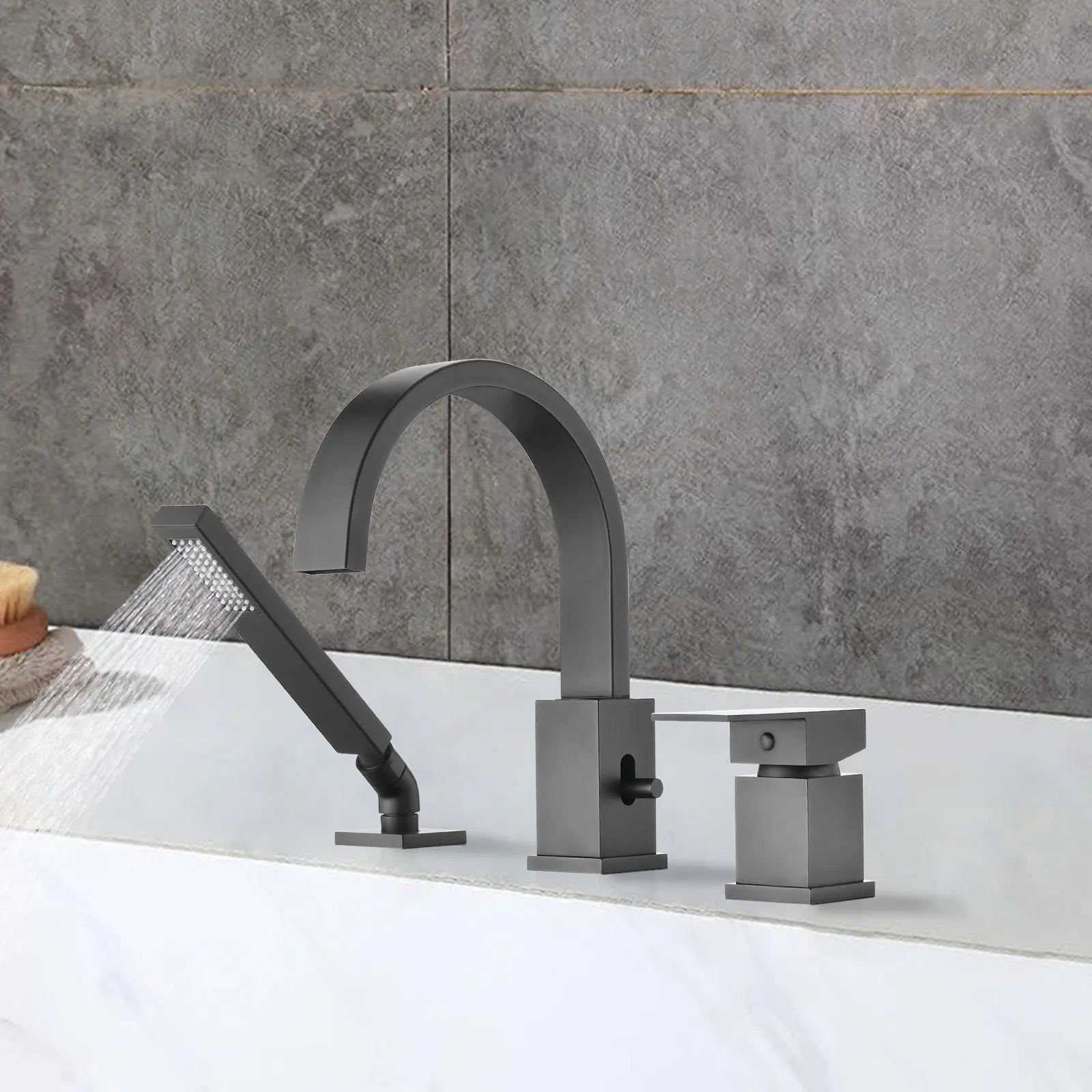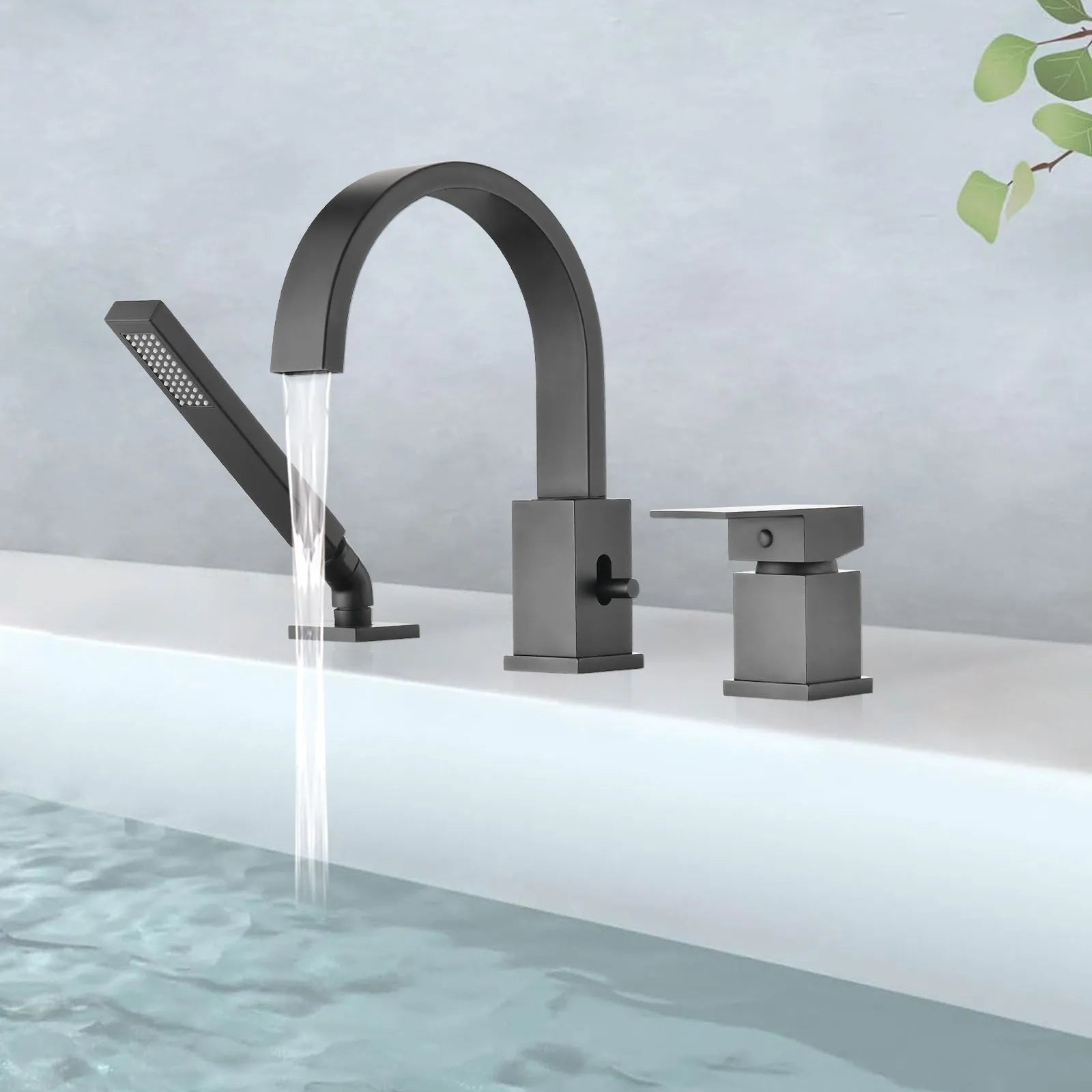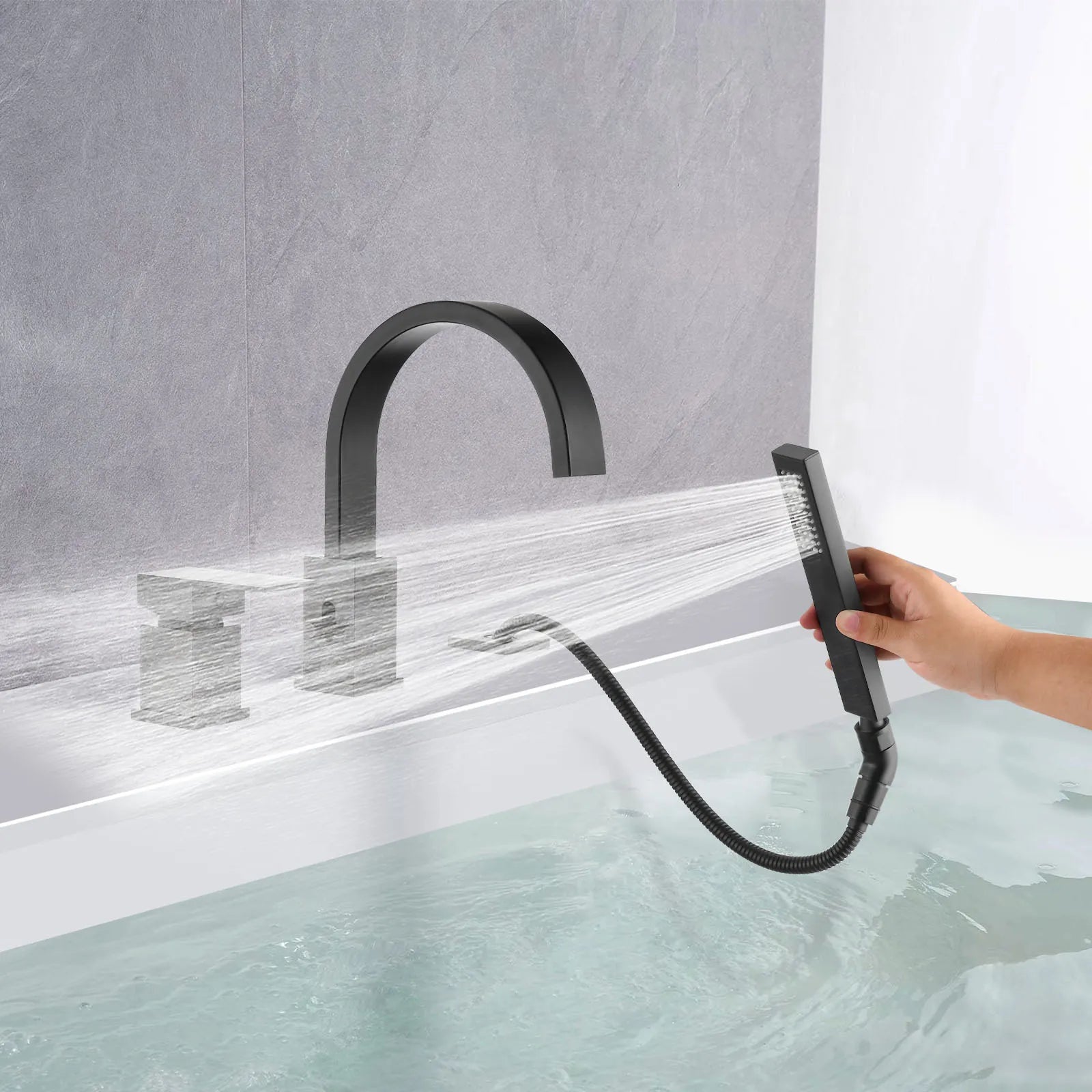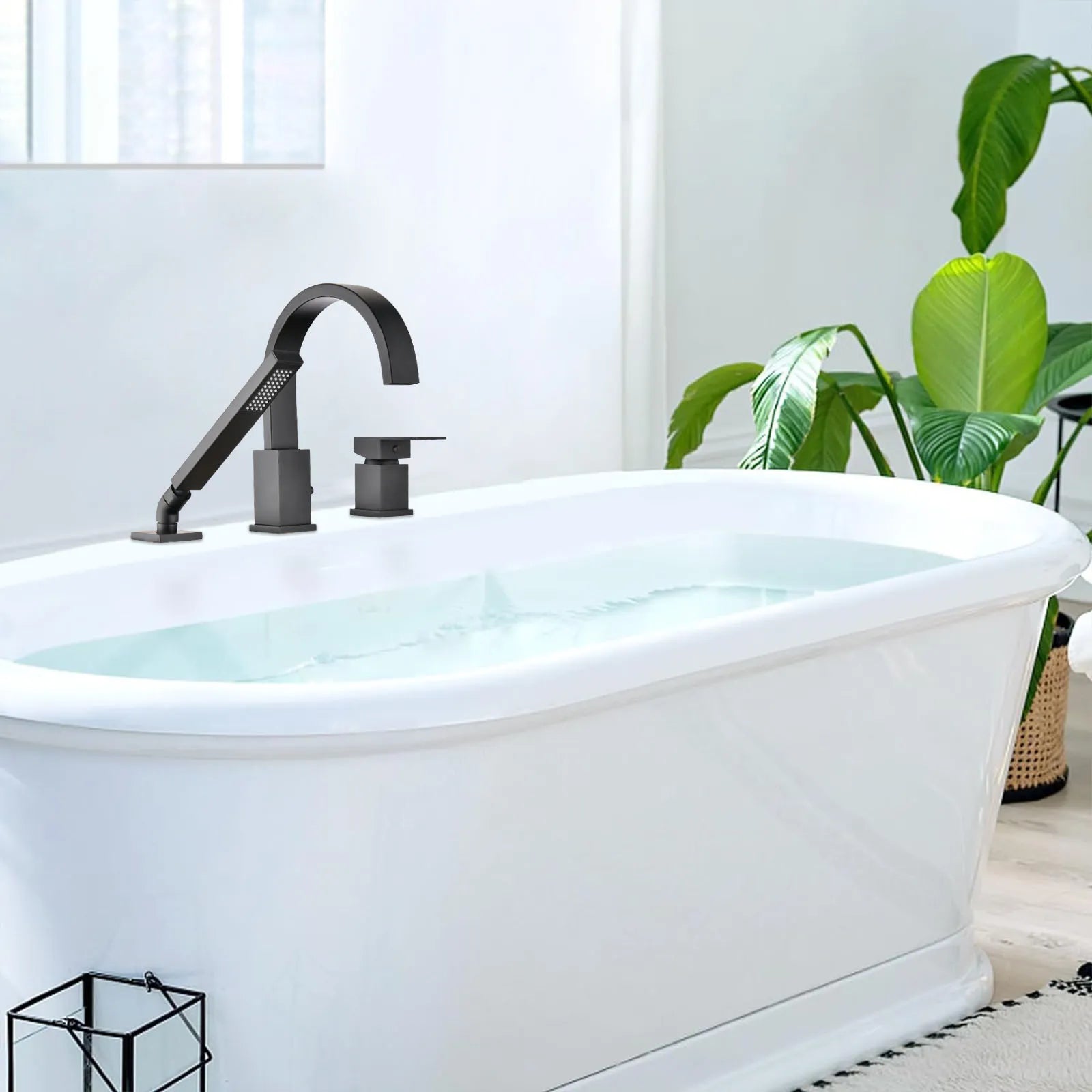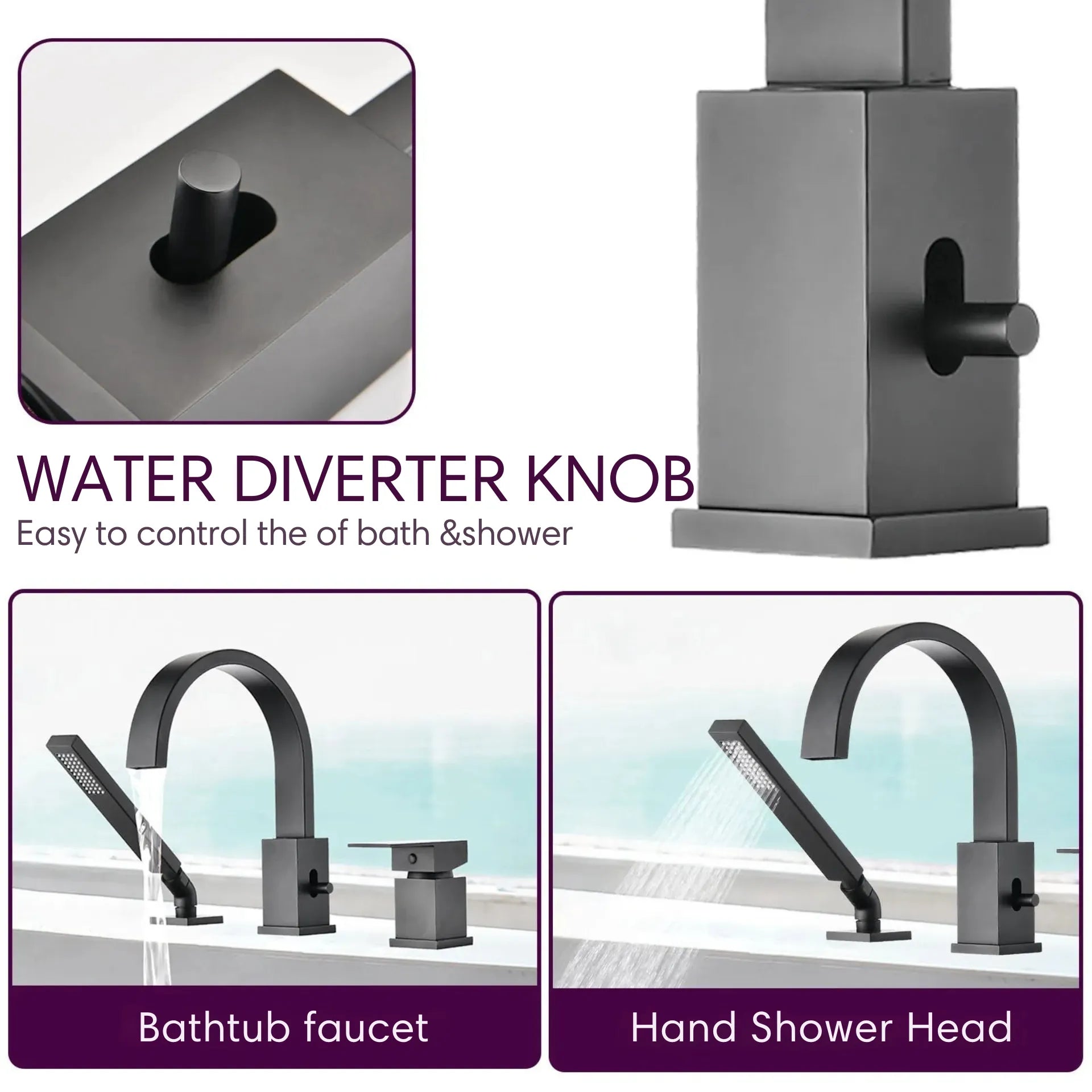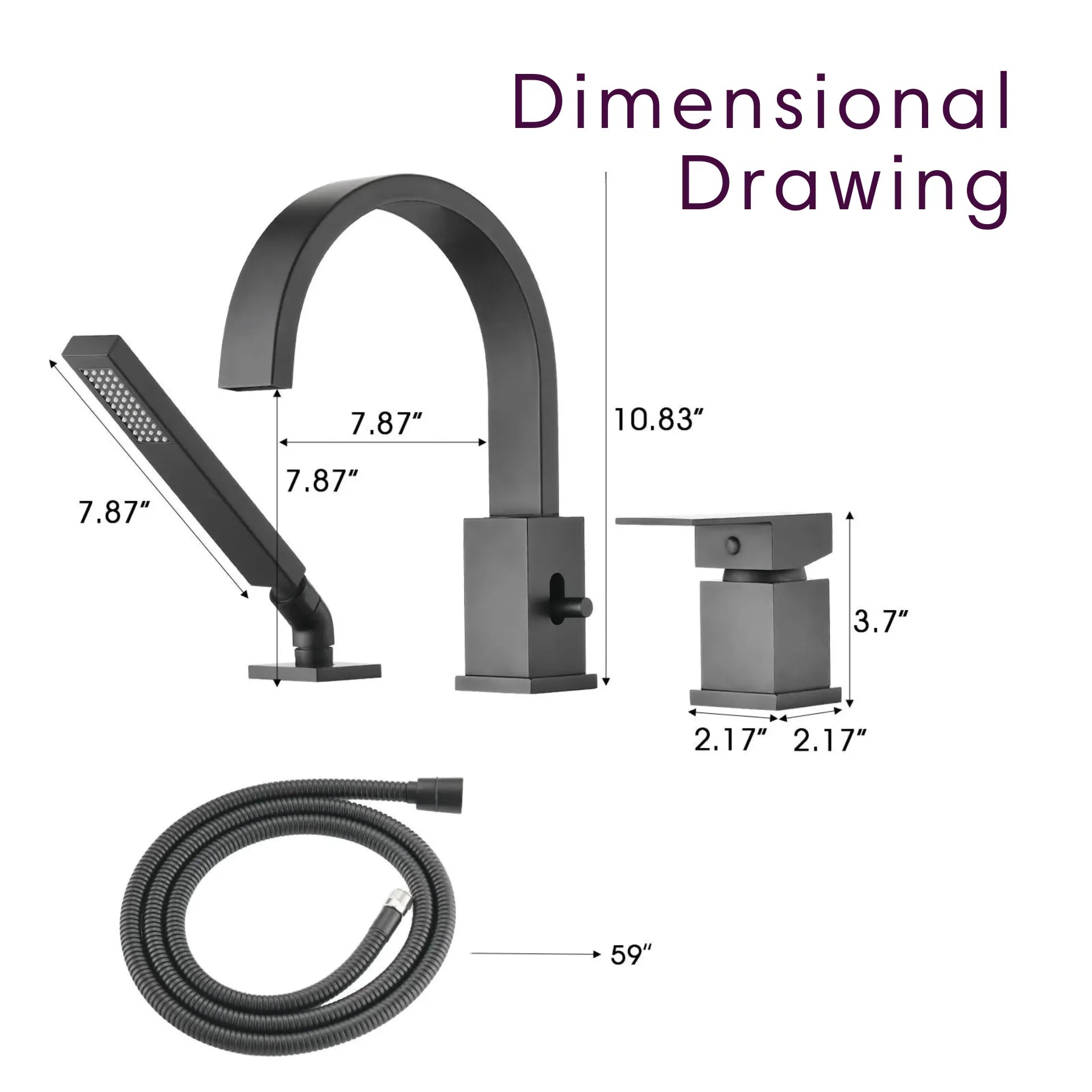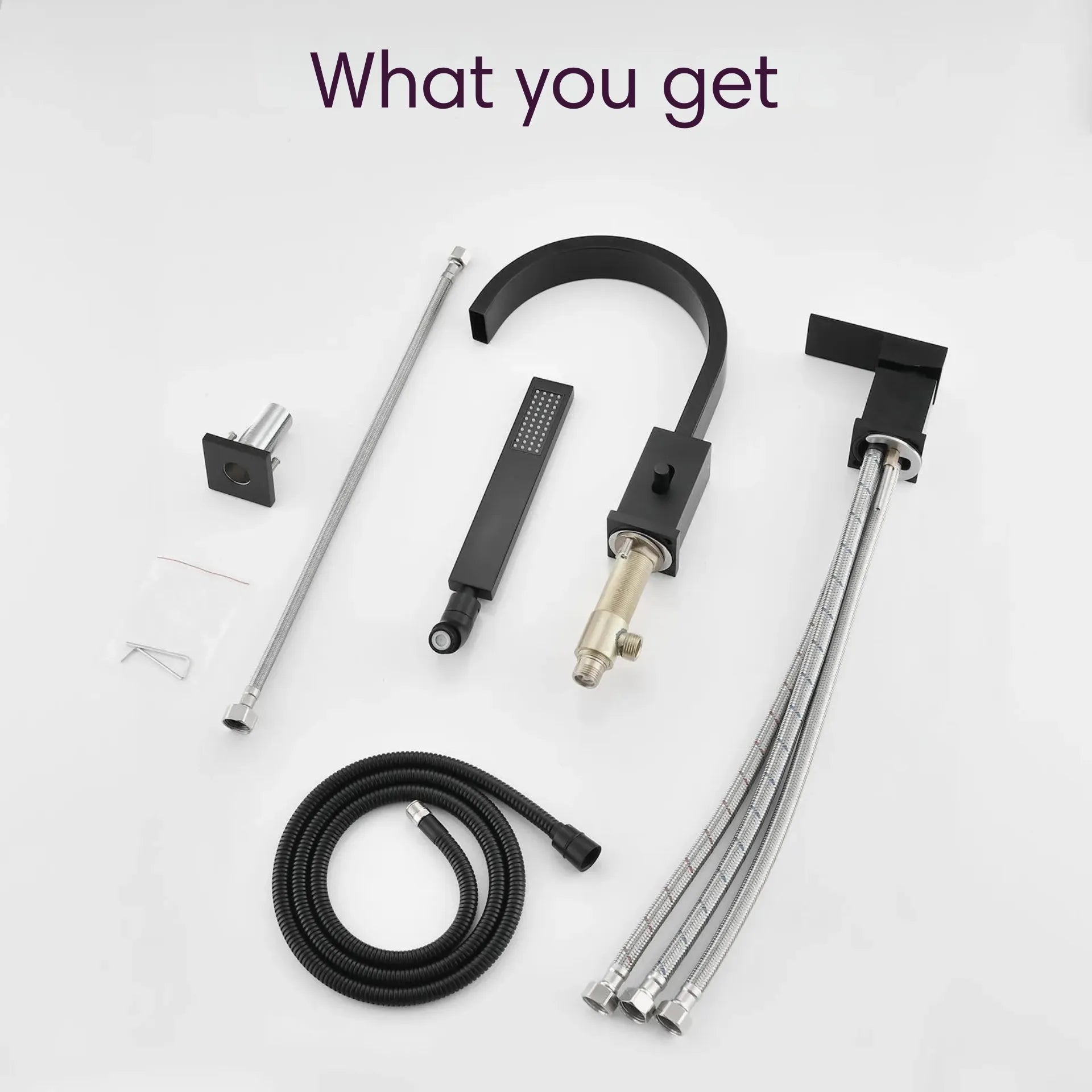Table of Contents
- Why Learn How to Change Bathtub Faucet
- Preparations and Precautions Before Installation
- Step-by-Step Guide on How to Change Bathtub Faucet
- How to Choose the Right Bathtub Faucet
- Quick Upgrade by Replacing Only the Handle
- Maintenance and Extending Faucet Life
- Common Problems and Solutions
- Conclusion
- FAQ
- Related Articles
Introduction
Many people replace bathtub faucets simply because of dripping or rust, but a bathtub faucet's role goes far beyond that. It determines whether a bathroom is healthy, safe, energy-efficient and aesthetically pleasing. Research by the US Environmental Protection Agency (EPA) shows that a leaky faucet can waste over 3,000 gallons of water a year, and some old faucets even pose a risk of metal leaching. Houzz's 2023 Bathroom Remodeling Report also indicates that over 48% of American households replace their bathtub faucets during renovations, with one-third choosing high-end materials.
In other words, learning how to change bathtub faucet is not only about saving money on hiring a plumber, but also represents an upgrade in lifestyle and home value.

1. Why Learn How to Change Bathtub Faucet
When you truly understand the meaning of how to change bathtub faucet, you will find that the changes it brings far exceed expectations.
- Water safety: Old faucets may contain lead, while modern faucets mostly use lead-free brass or stainless steel, which better meet health standards.
- Comfortable experience: The new faucet delivers water smoothly and quietly, reducing noise and enhancing daily use.
- Aesthetic upgrade: Selecting the right faucet is an important step during renovation, especially when aiming to match interior design.
- Energy conservation: EPA’s WaterSense® faucet can help families save about 700 gallons of water each year.
- Long-term value: High-quality faucets last for 10 to 15 years, while low-cost ones may need to be replaced every 3 to 5 years.
In other words, mastering how to change bathtub faucet means safeguarding health, enhancing comfort and saving long-term costs.
2. Preparations and Precautions Before Installation
Many people search for how to change bathtub faucet because they want to confirm if they can do it themselves. With proper preparation, a lot of troubles can be avoided.
- Essential tools: Wrench, screwdriver, Allen key, sealing tape, silicone.
- Suggested tools: Lubricating spray, measuring tape, glue remover knife.
Notes before starting:
- Confirm whether the faucet type is screw-on or slip-on.
- Measure the length and diameter of the pipe to ensure fit.
- Check for any signs of water seepage on the wall or pipeline.
Before you start, understanding every step of how to change bathtub faucet will give you confidence and prevent common mistakes.

3. Step-by-Step Guide on How to Change Bathtub Faucet
Step 1 – Turn off the water supply and drain the bathtub
The first step of how to change bathtub faucet is shutting off the main water supply and draining excess water. Skipping this may lead to an “indoor waterfall.”
Step 2 – Remove the old faucet
- Screw-on type: Unscrew counterclockwise. Apply lubricant if stuck.
- Slip-on type: Locate screws underneath and loosen with an Allen key.
This is the step that worries most beginners when searching “how to change bathtub faucet,” but in practice, it’s straightforward. For a more detailed breakdown, you can also check how to remove bathtub faucet with step-by-step visuals.
Step 3 – Clean the pipe and surrounding area
Thoroughly remove old silicone and tape. A clean interface ensures that how to change bathtub faucet is done leak-free.
Step 4 – Install the new faucet
- Screw-on: Wrap sealing tape and screw it in clockwise.
- Slip-on: Push into the pipe and tighten the screw.
At this stage of how to change bathtub faucet, many homeowners feel a sense of accomplishment.
Step 5 – Sealing and Testing
Apply silicone around the joint to prevent leaks and mold. Turn the water back on and test. Once successful, you’ve officially completed how to change bathtub faucet.
4. How to Choose the Right Bathtub Faucet
Many people realize after learning how to change bathtub faucet that the real challenge is choosing the right faucet.
Material and Health: Lead-free brass and 304 stainless steel are long-lasting and safe. This is especially true when comparing the best bathtub faucet sets for durability and design.
Style Matching:
- Freestanding tub → wall-mounted or Roman faucet.
- Walk-in tub → high-flow single-handle faucet.
- Jacuzzi or massage tub → faucet with high GPM.
- Surface treatment: Chrome plating is durable, matte black and brushed nickel are stylish.
- Eco-friendly choice: Select WaterSense® faucets for both comfort and water savings.
Knowing how to change bathtub faucet is only half the story; choosing the right one ensures the upgrade is worth it.
5. Quick Upgrade by Replacing Only the Handle
Sometimes the faucet works fine, but the look feels outdated. In this case, instead of replacing the entire faucet, just learn how to change bathtub faucet handle. In some cases, you may also need to replace a bathtub faucet cartridge for better performance.
Steps are simple: turn off the water, remove the old handle, clean the valve core, and install the new handle. Within 20 minutes, your bathroom gets a quick refresh without fully repeating how to change bathtub faucet.
6. Maintenance and Extending Faucet Life
Mastering how to change bathtub faucet is only the beginning. Regular care ensures durability:
- Dry after use to prevent stains.
- Once a month, clean outlet with vinegar to remove scale.
- Inspect screws and seals every 3–6 months.
- Avoid harsh cleaners like bleach and steel wool.
Good maintenance means you won’t need to Google how to change bathtub faucet again too soon.
7. Common Problems and Solutions
Many people face similar issues even after learning how to change bathtub faucet:
- New faucet still drips → usually the valve core has aged.
- Low water pressure → faucet might be clogged, clean or replace with higher GPM.
- Improper fit → often from failing to measure pipe length.
- Loose handle → replace O-ring or tighten screws.
Different types of bathtub faucet handles may also influence how often this issue appears.
Conclusion
Mastering how to change bathtub faucet is not just a DIY project; it’s a lifestyle upgrade. With this skill, your bathroom can become:
- Safer and healthier
- More beautiful and stylish
- More energy-efficient
- More comfortable daily
If you’re planning a bathroom renovation, don’t overlook the faucet. By choosing the right product and knowing how to change bathtub faucet, you’ll save money, reduce stress, and add value to your home for years.
Ready to take the next step? Explore our selection of premium faucets and walk-in tubs today, and transform your bathroom into a space that’s both functional and luxurious.
FAQ
1. Will changing a faucet affect home insurance?
Yes, if leaks occur due to DIY errors, claims may be impacted. Many homeowners researching how to change bathtub faucet do so to ensure safe installation.
2. Can a regular faucet be replaced with one that has a handheld showerhead?
Yes, but it requires a diverter and possible pipe modification. Many people search for how to change bathtub faucet with shower diverter before upgrading.
3. Is a walk-in tub faucet the same as a regular bathtub faucet?
Not exactly. Walk-in tubs need higher GPM faucets. When learning how to change bathtub faucet, flow rate is key.
4. Do high-end faucets need special maintenance?
Not usually. Just clean gently to avoid damaging the finish. This is part of knowing not only how to change bathtub faucet, but also how to care for it.
5. Can beginners learn how to change bathtub faucet without prior plumbing experience?
Absolutely. With the right tools and patience, beginners can safely follow step-by-step instructions on how to change bathtub faucet.
Related Articles:
What Is a Soaking Tub? The Deep-Dive Guide to Depth, Fit, Materials, Heat, and Buying Like a Pro
Garden Bathtubs in 2025: The Ultimate Statement of Luxury and Comfort
What is an Ofuro? Discover the Japanese Tub for Deep Relaxation
